







In-person Coding Club















So the new school year rolls around again and your child is heading off to school with bright and shiny new uniform and gear and hopefully a big smile; leaving you with perhaps just a little time on your hands to delve into our great Education feature and explore how to support your child’s learning this year. Whatever stage your child is at you’ll find something of interest, including tips for Open Days, how to understand learning styles and 11+ preparation.
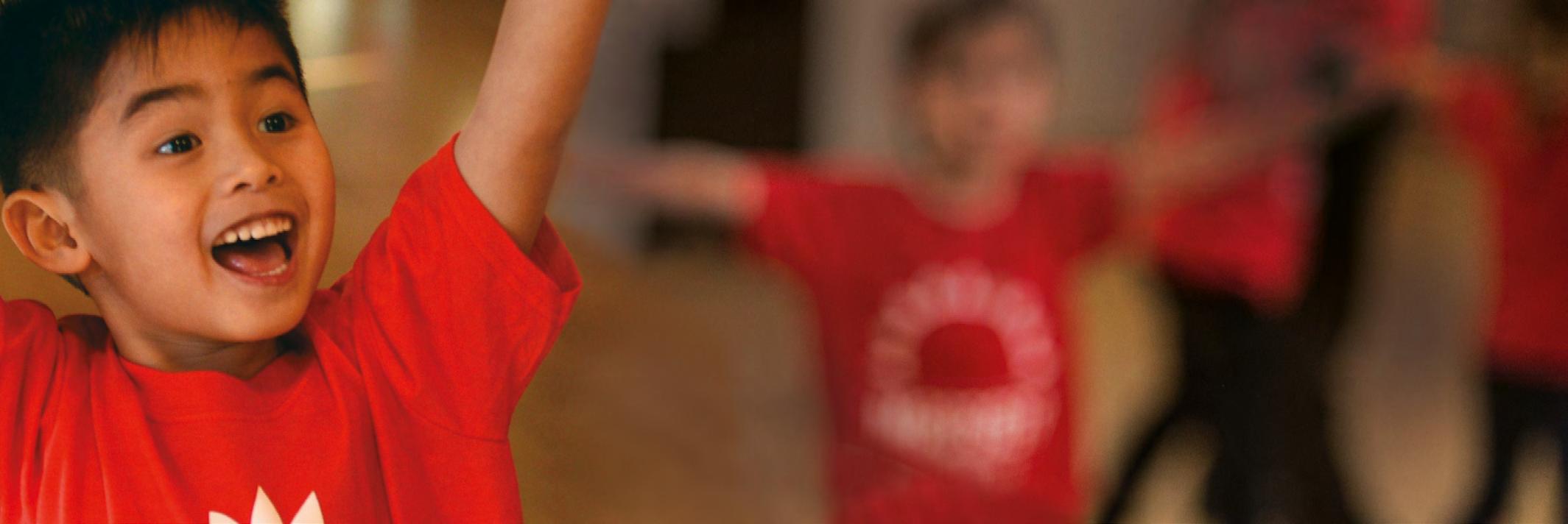
Our What’s On guide is packed full of autumn events to fill your diaries and our local reporters have been busy visiting new places to inspire your next family day out.

Enjoy!
Reach 40,000 readers and advertise with us.

Next issue: November/December – Christmas Special.
Booking and copy deadline: 7th October 2023.
For daily updates, follow us on Facebook and Instagram @ Families Chiltern.

Odds Farm Park, near Beaconsfield, is giving children the opportunity to get involved with harvesting thousands of pumpkins during its annual Pumpkin Festival. Over 7,000 pumpkin seeds were planted by farm workers in the spring ready for harvesting late autumn. Little ones can choose their own mini wheelbarrow before exploring the Oddlotment Pumpkin Patch to carefully select their own pumpkin to take home. The Carving Corner will be open for families keen to pimp up their pumpkin without having to take the mess home. A tealight will be available for every pumpkin. And crafty visitors can get stuck in at the autumnthemed arts and crafts area where there is plenty for younger guests to get creative with. Louise Winslow, assistant general manager at Odds Farm Park, says: “We absolutely love the Pumpkin Festival here at Odds. It’s a riot of colour every year and always makes for some special family memories. We hope children and their parents will also enjoy the host of other pumpkin-related activities we have here including our Halloween trail around the farm.” The Pumpkin Festival takes place between 21st – 29th October. For more information, visit: < oddsfarm.co.uk

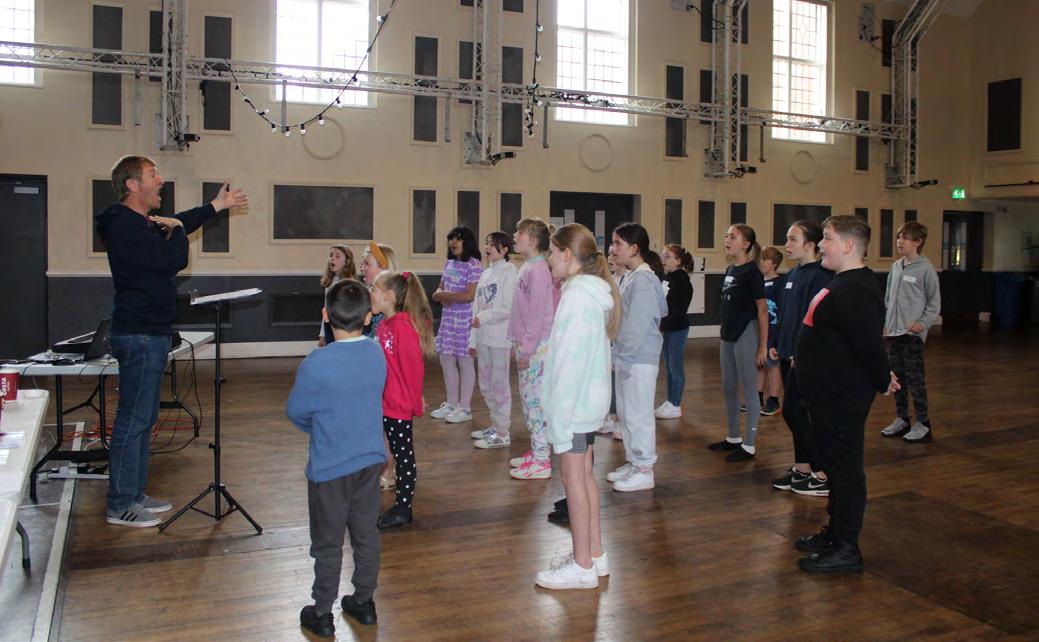
100 local children will be taking part in Florence Nightingale Hospice Charity’s production of Nativity! The Musical on Saturday 28th October at Wycombe Swan Theatre.
To get ready for this family-fun show, the children will take part in a rehearsal week where they will learn the songs, dances and script alongside experienced theatre professionals, culminating with two performances on the theatre’s main stage.
The charity also need volunteers, aged 14+ to assist backstage. If you are interested in lighting, sound or set design, please get in touch: volunteering@fnhospice.org.uk
Primary school children in England have ranked fourth in the international rankings for reading. The latest results in the Progress in International Reading Literacy Study - known as Pirls - saw England’s rank jump from eighth position into the top five.
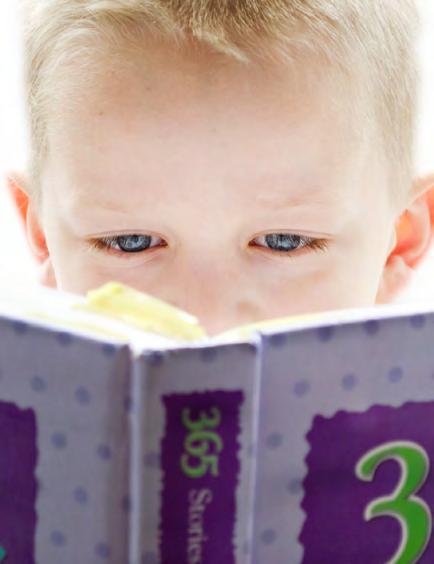
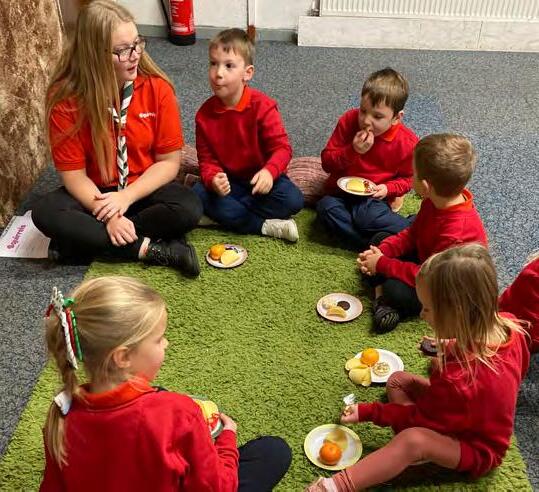
Based on tests taken every five years, the study places countries in a global education league table. Singapore scored the highest result, with an average score of 587. Second was Hong Kong with an average score of 573, followed by Russia (567) and England (558).
The Pirls tests are taken by children ages 9 and 10, normally Year 5 pupils in England, at the end of the school year. Overall, girls were ahead of boys in their reading achievement in nearly all of the ranked countries but the gender gap has narrowed in the most recent testing round.
More info: < iea.nl/ studies/iea/pirls
Scout groups across Buckinghamshire are looking for adults to volunteer as there is a huge demand from children and teenagers wanting to join. Nigel Taylor, lead volunteer said: “If we can recruit some adults to help run Squirrels, Beavers, Cubs, Scouts or Explorers, then we can take lots of those young people off our waiting list and we can provide them with great opportunities to learn new skills. Whatever time people want to give, we would be able to find them a role! We will provide lots of opportunities to have fun yourselves; whether this is visiting the local fire station, having a bird of prey sit on your arm, getting a permit to steer a narrowboat or taking Explorer Scouts to a World Scout Jamboree.” If you would like to know more about volunteering, please visit: < scouts.org.uk/join
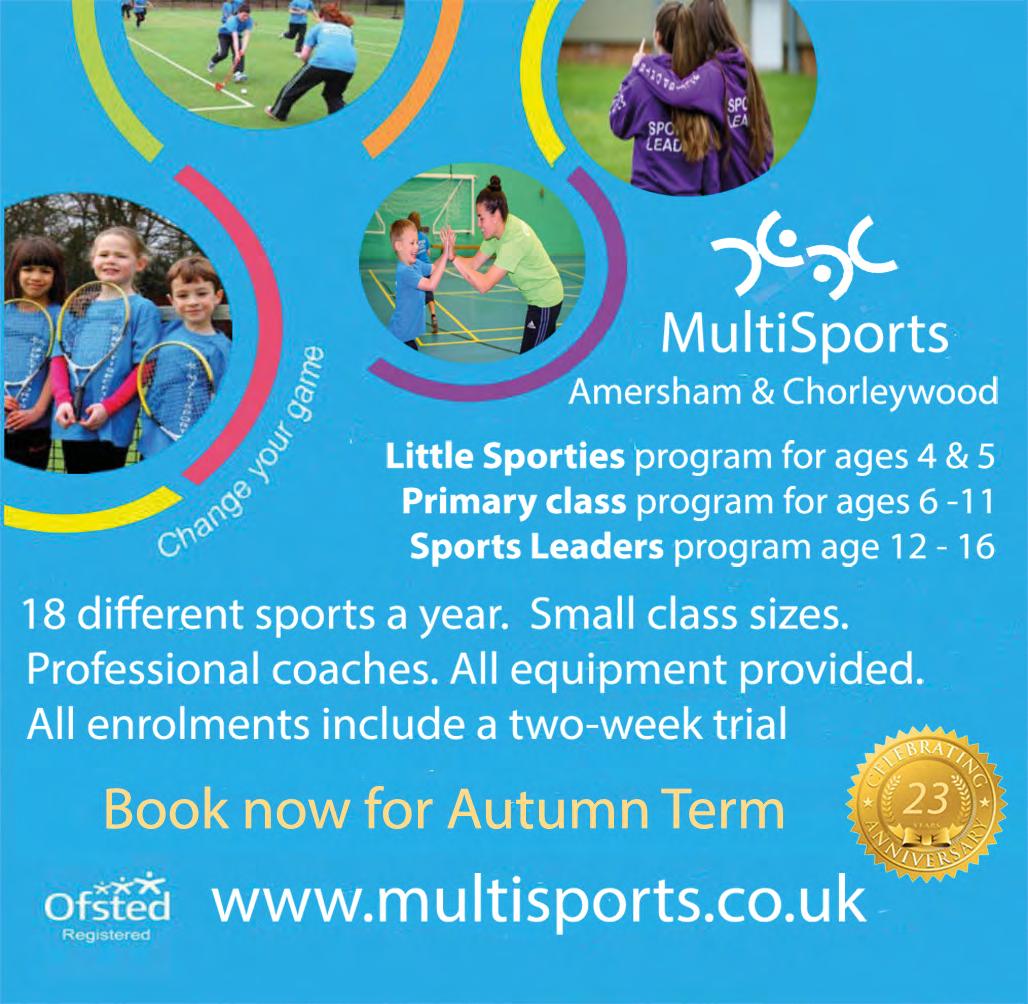

Parents in the Irish town of Greystones have banded together to collectively tell their children they cannot have a smartphone until secondary school.

Parents’ associations across the district’s eight primary schools have adopted a no-smartphone code to present a united front against their children’s lobbying.
“If everyone does it across the board you don’t feel like you’re the odd one out. It makes it so much easier to say ‘no’ said Laura Bourne, who has a child in primary school. The longer we can preserve their innocence the better.”
The voluntary pact is to withhold smartphones from children - at home, in school, everywhere - until they enter secondary school. Applying it to all children in the area reduces the chance of a child having a peer with a smartphone and parents can present the code as a school rule. For more information: < theguardian.com
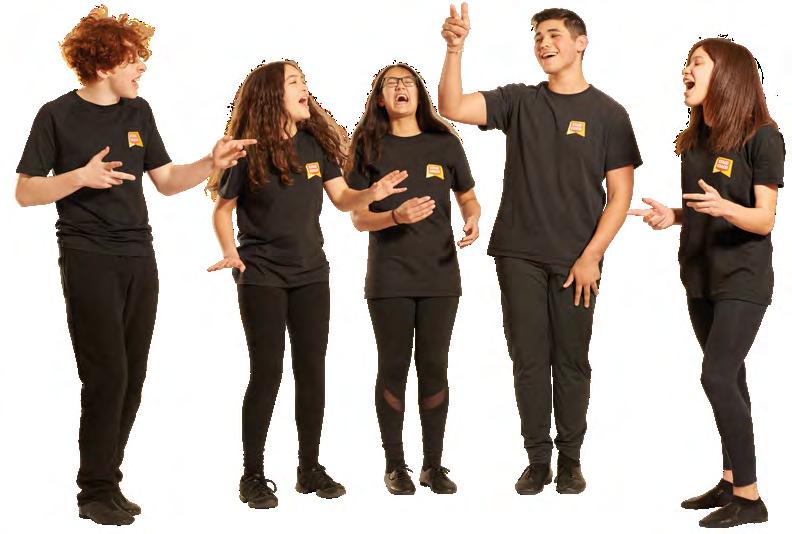
Everyone knows that meditation is good for you, not just for adults but for children too. Meditation can help children in many ways – to regulate their emotions, improve concentration, confidence and to help with falling asleep and getting along well with others.
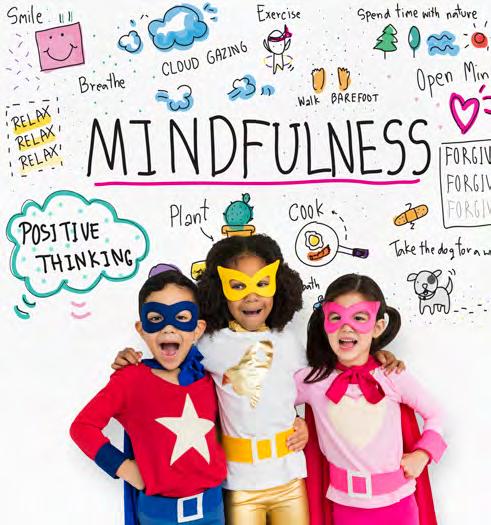
Guided meditation, ‘Meditation on Stillness’ classes are starting this term in Holmer Green for primary school aged children and will be held every Thursday (term-time) from 14th September. During each session there will be a game, a story and a short meditation. Children will be read a story about an emotion (e.g. anger, kindness, worry) and helpful techniques will then be talked about to help them manage these emotions and to let go of unhelpful thoughts. For more information and to book, please contact Krissie Waldock on: 07521 125654.


The Family Learning team at Buckinghamshire Adult Learning run free online and in-person courses and workshops across Buckinghamshire to help parents understand how to support their children with learning.
They offer Early Years courses and workshops for parents and children from 18 months to five years, focusing on building early language and learning through play. They also run courses for parents of Reception to Year 6 children, covering English, maths and science – giving parents the confidence and resources to support their children at home. For Reception to Year 9 they run sessions to help with wellbeing and anxiety. For more information, visit: < adultlearningbc.ac.uk/family-learning
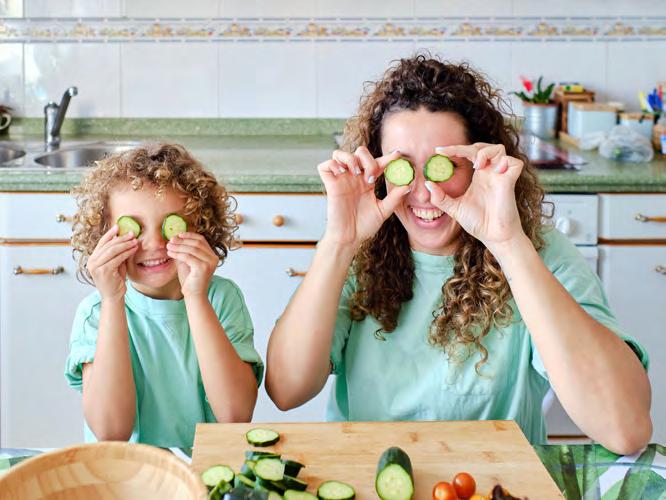
There’s something very special about the Roald Dahl Museum. Stepping inside you are greeted by familiar illustrations, props and pictures, all of which create a feeling as though you’ve stepped back into your own childhood. At least, this was the case for my family.
The museum itself is compact, with several large rooms dedicated to Roald Dahl and his adventures through life, as well as journeys through his books. Each room is very different from the last, with treasures large and small to explore. The Story Centre room was the perfect place for us to relax and try our hands at some craft activities. Nearly an hour was spent decompressing in the calm atmosphere, crafting and colouring and hanging up our song birds, (if anyone sees the Captain America songbird, that’s one of ours!). The day was rounded off with measuring ourselves against various characters and dressing up as them.
When stepping back into one room that we’d already left, my eldest child and I discovered some small eyeholes with pictures in that we’d missed previously. I suspect for us we will be visiting again soon to further investigate anything missed.
Location: Great Missenden, HP16 0AL. Note: Tickets are £7.95 for adults and children 5 + years, (under 5’s free.) Tickets are valid for a year. < roalddahl.com/museum
We spent a lovely few hours with just the toddlers at Nathan’s farm. The farm itself is a good size but has a very personal family feel to it. The lady at the desk was very friendly and helpful, describing the farm, the animals and different areas to explore. We enjoyed feeding the horses, all of whom were eager to say ‘hi’ and the goats who had some beautiful babies. One, Billy (aptly named), was curious and friendly – a firm favourite with everyone. The pigs were eager to see us but bottle feeding the lambs was the real highlight.
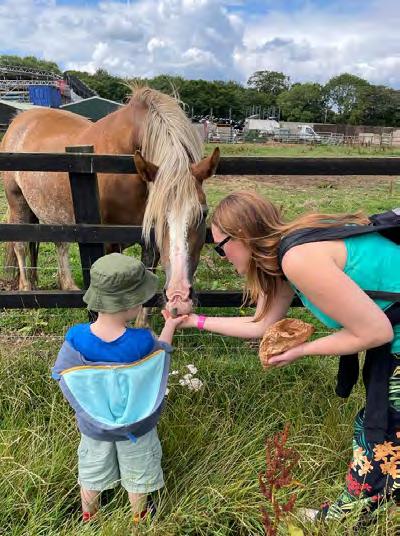
The personal feel was more obvious in that we could go into some of the pens and get close to the animals. The play area was a hit with the toddlers, with a variety of things including playhouses. The experience was rounded off by cuddles with ducklings, chicks and bunnies. All in all, it was a lovely time and I’ll be sure to go back again with my animal mad eldest.
Location: Chalfont St Giles, HP8 4BT. Note: Entry cost £10 per car, any deals are advertised at the desk where you pay and include animal feedings. < nathansfarm.co.uk
By Claire Lockie Williams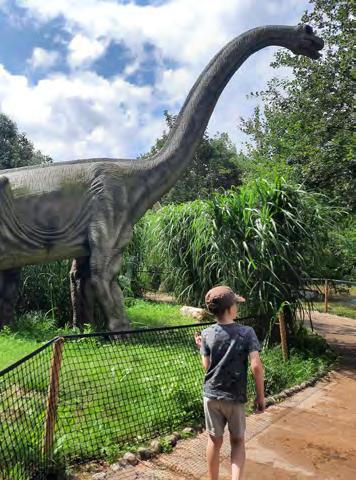
We spent a lovely sunny Sunday at Gulliver’s. With two small boys who love dinosaurs, animals and insects, it was truly a win. It’s a decent-sized park, we spent over 5-hours enjoying each of the different areas. My eldest was especially excited by the dinosaurs, running from one to another to excitedly identify them before we read their plaques. We all loved watching them move, given some were quick and noisy while other quiet and subtle, it was a game in itself.
The ride-on dinosaurs were a hit, as were the many small play areas. My youngest was ecstatic to see the Hungry Caterpillar and shout “behind you” at the show. The animals were a hit to see, stroke and feed with sibling struggles over who got the food bags. Giant insects dotted around the gardens, several of which moved. The millipede, ant and spider were firm favourites. As I write this, both boys are fast asleep in the car so certainly a fun day out!
Location: Milton Keynes, MK15 0DT. Note: Tickets are £10 per person, with concessionary rates of £7.50. Under 90cm infants are free. < gulliverslandresort.co.uk
Though my youngest and I had previously attended (and loved) the toddler learning groups, the Multiply Workshop was a new type of activity for us – geared towards my eldest instead. As my boys both very much like maths, I was keen to challenge and excite them, especially over the holidays when, for us, academic learning generally goes out the window.
The course itself is free and focuses on developing maths skills through play, engaging children with fun activities while educating them. Everyone at the centre was lovely, very friendly and engaging with the children. The first ‘task’ was an escape room. 12 clues had to be found within the room, all of which involved various maths activities to find a ‘release code’. It was a bit challenging for the children, with them all being on the younger end of the scale, however the teachers adapted the length and encouraged a team exercise with all the children and parents pooling their knowledge. Other tasks involved cookery, craft and a treasure hunt – the latter of which had all the children buzzing. Rounded off by lunch (with puddling first!), my boys were on a high as we left.
Location: Family Learning Centre, Chesham (HP52RG). Note: There are eligibility requirements to this course. All the courses have different requirements and costs. See: < adultlearningbc.ac.uk/family-learning
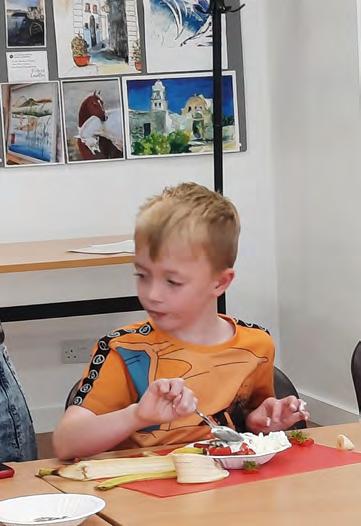
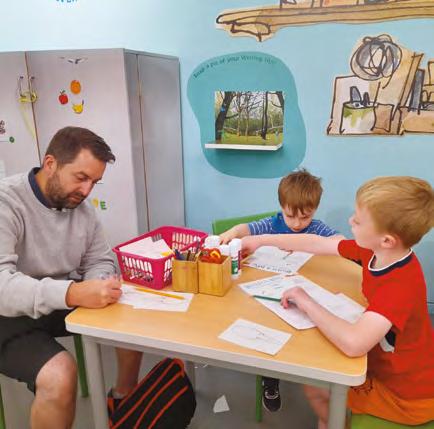
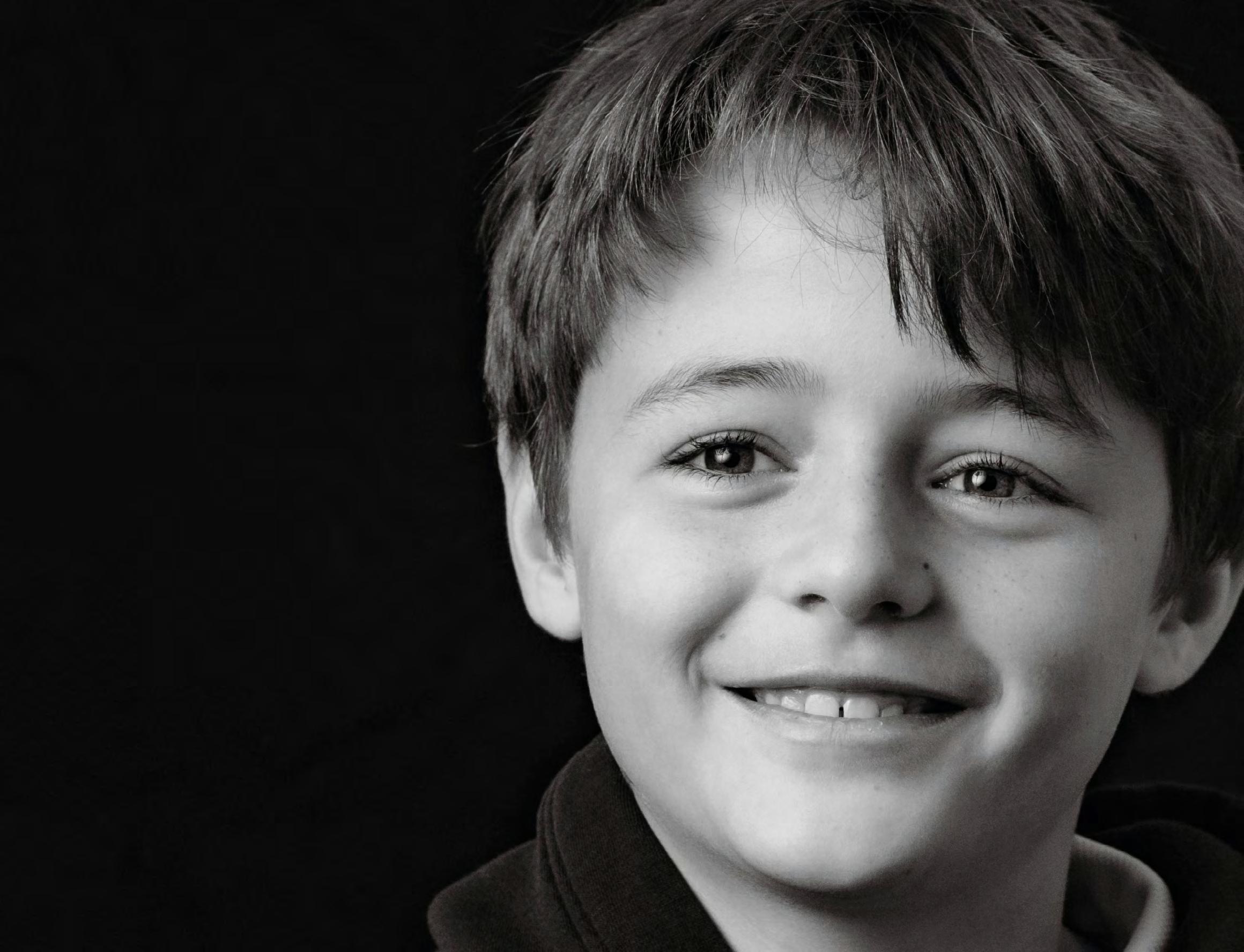
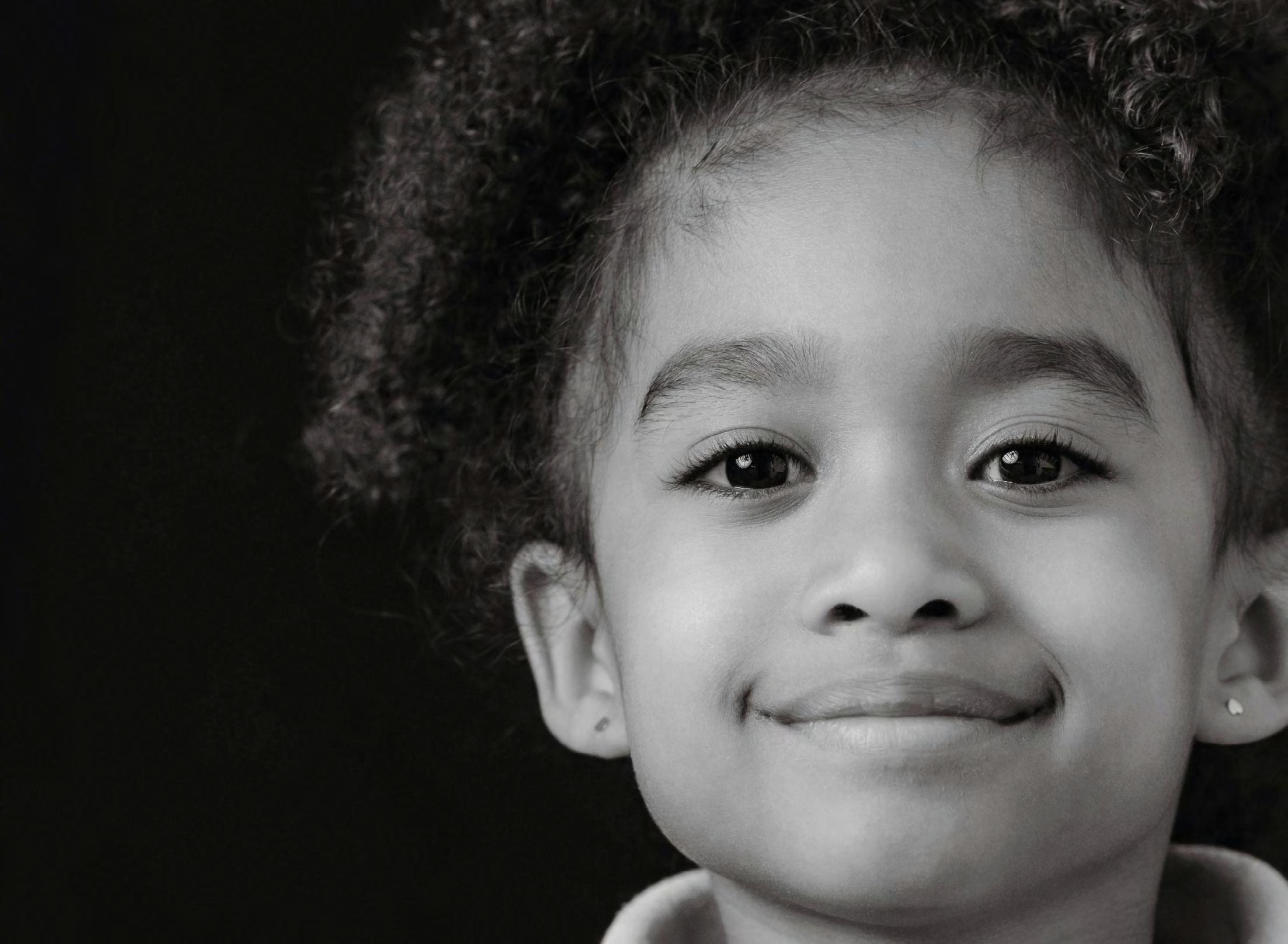
We went to the River and Rowing Museum in Henley. First we went in the Wind in the Willows experience. It is a pathway where statues tell the story. The music brings the story to life. In one part it is spooky and dark and the other is light and bright. In the light bit, it has a caravan with teacups you can play with. Then we went to the play room, it is quite entertaining for little kids and you can also meet Mr Toad! There are also some boats to see in the Museum but we only saw a few. After the Museum, we walked along the river to the playground and got an ice cream! I had a lovely day and my favourite part was the Wind in the Willows experience.
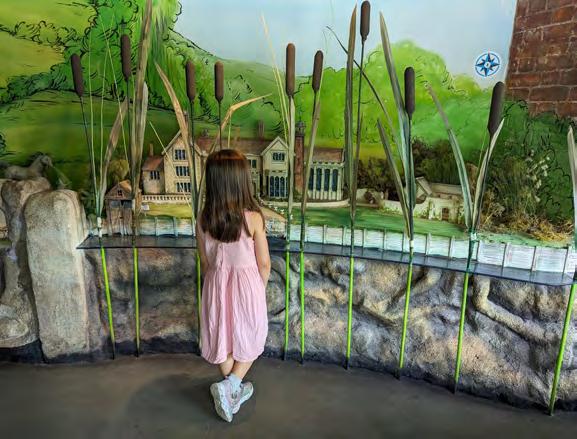
Last term, I was learning all about World War 2 and so my family and I went to visit the RAF Museum in London. This was great, my parents liked it because it was free but interesting and I liked it because it was really fun!



When we arrived we found out about people who had won medals and fought in the war. We got to see some planes straight away and find out about what the RAF do. They had some interactive areas which I liked. We then looked at WW1 and WW2 planes; they were massive. We got to look inside of one which was really cool.
We had lunch at the cafe (the food there was really good but there was a long queue). I enjoyed seeing more WW2 planes and learning about the Battle of Britain and the Blitz. There were videos and lots of things to read. The Lancaster Bomber was huge!
Want to turn a terrible Tuesday into a terrific Tuesday? Well then, go to the Chiltern Open Air Museum on one of their Terrific Tuesday holiday sessions. Every Tuesday during the school holidays there is a selection of amazing arts, craft and storytelling activities in some of the buildings.
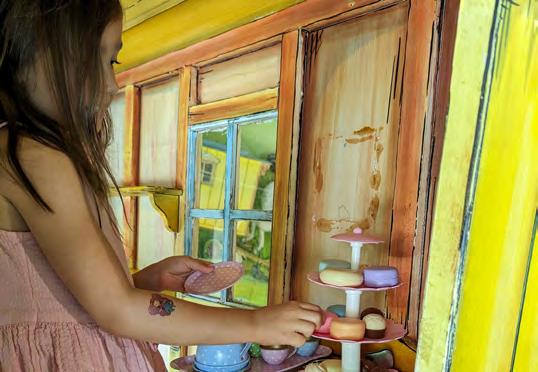
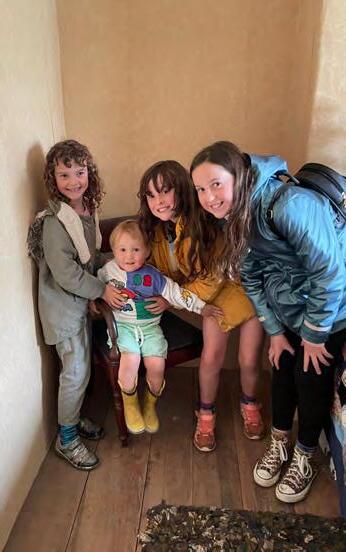
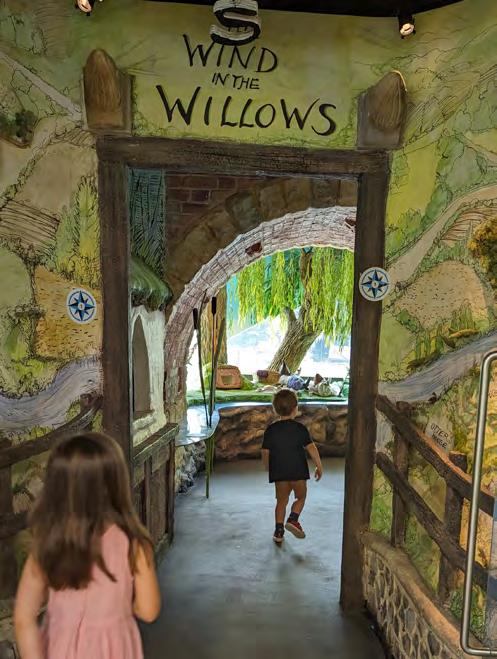
When we went to the Chiltern Open Air Museum it was a dismal, rainy day but the Terrific Tuesday kept us busy and we didn’t need to think about the weather!






First, we visited the Victorian classroom. Inside was a floral craft activity, suitable for all ages as my siblings are 11 and 7 and we all enjoyed it! Next, we got creative with natural sculptures in the woods behind the Iron Age hut. If you are wondering what a natural sculpture is, it involves collecting natural materials and making a picture with them. Again, all my siblings loved it! We also visited some Victorian houses.
My brother and I liked playing in the plane-themed play park and then we joined an activity about training to be a WW2 pilot. My favourite part was the obstacle course. At the end, we were given a badge and had our pictures taken before going home - but I wish we hadn’t because it was so much fun. I wish I could go again!
Inside there were lots of different rooms; a guest room, a living room, a children’s bedroom and even a bedroom from the 1970s. My brother loved the retro music! After that we went to an old barn and made some clay animals. I’m quite proud of my clay spider model!
After a hot chocolate and cake stop it was time to go home. I thoroughly enjoyed our terrific time at the Museum and I really hope to go again.



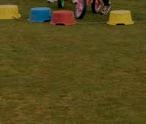
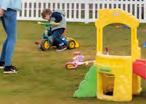
Sensory activities enrich children’s play by encouraging them to engage their senses and explore the world around them, sparking their imaginations and developing curiosity. Katie Still suggests some sensory play ideas.




Ready, set, go! Your child can make super-simple cork sailing boats, then have a boat race across the bathtub. Safety first: don’t forget adult supervision is always required when a child is playing with water.
Go and grab… corks, elastic bands, triangular pieces of paper, colouring pens, cocktail sticks, an optional straw. A bathtub or tray of water.
Line up three corks in a row. Pop an elastic band around them at each end to hold them together.

Make a paper sail and use the colouring pens to make a pattern. Push a cocktail stick carefully through the sail for a mast (adults, probably best you do this), then slowly stick it into the middle cork.
Ready to set sail?
Brilliant! Set the boats afloat in the bathtub or a tray of water and see which one crosses the finish line first. Sails need wind, don’t they? Show your child how to use a straw to blow wind into the sails. How fast can the boat go?



It’s time to go exploring in the garden or park for different-coloured leaves to make some beautiful nature confetti

Go and grab… a collection bowl and a hole-puncher. Find a selection of leaves of different colours and shapes, avoiding prickly, stinging or dangerous plants. Slide each one into the hole-puncher and make holes all over the leaf. Fill the bowl with the little shapes, taking care to keep little fingers clear of the puncher. What will your child want to do with their nature confetti - stick it on a picture maybe, or sprinkle it on the grass?
Let’s hear it!
What sounds can your child hear outside? Leaves rustling, bees buzzing, birds singing and dogs barking…






Let your child’s imagination run wild by creating some story stones to invent their own story!
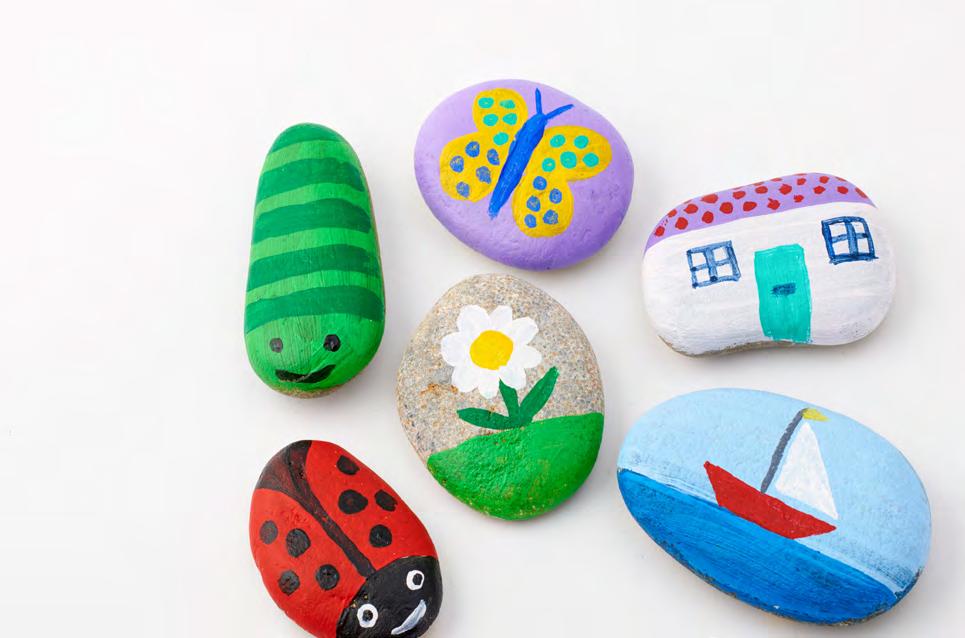
Go and grab… paints and paintbrushes or colouring pens. A small bag or basket. Storybooks if you need some inspiration.
Go outside and collect some stones. Can you help your child find flat-ish ones that are all different shapes and sizes? Next, ask your child what they will paint on their story stones. Maybe characters from a book or animals; or simply things that they love? If drawing is too tricky, your little one can use stickers on their stones.
Once they’ve finished, pop the stones into the bag or basket and your child is ready to play. Ask them to take out the first stone. What drawing is on it? It’s over to them to make up a story around it; they decide what happens! Then they pull out a second stone - what’s the next part of the story…?
Let’s make it!
What sounds can your child make to accompany their story: the splash of waves maybe or the hum of an insect?
Looking for a fantastic pre-school with over 25 years experience in an idyllic setting? You’ve found it!
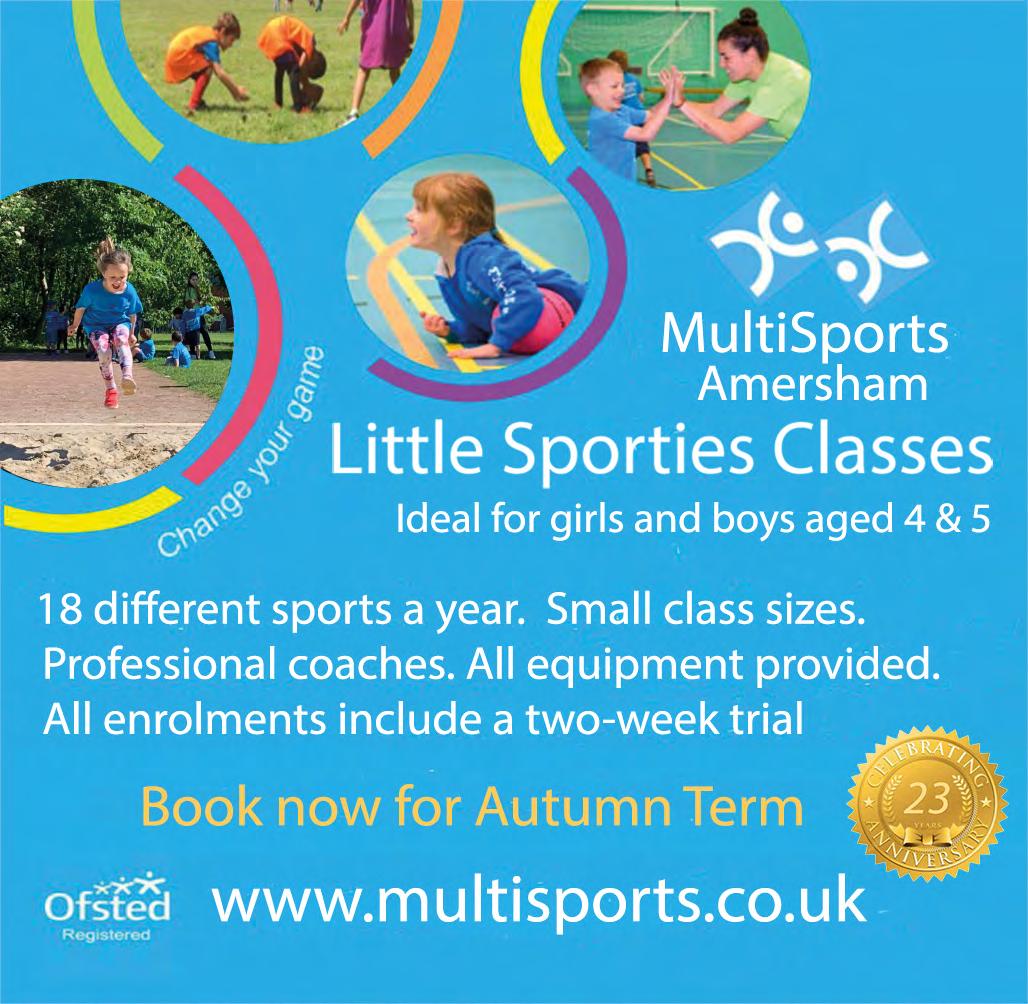
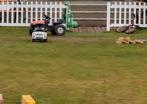

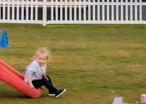
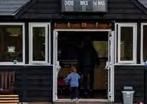

Call Parvinder on 01494 433020 to arrange a visit. www.steppingstonesamersham.co.uk

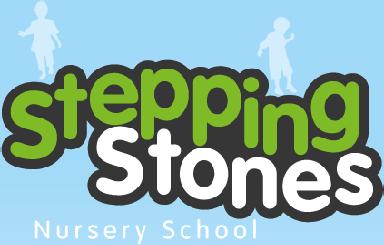





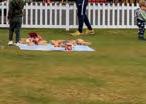
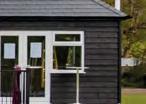








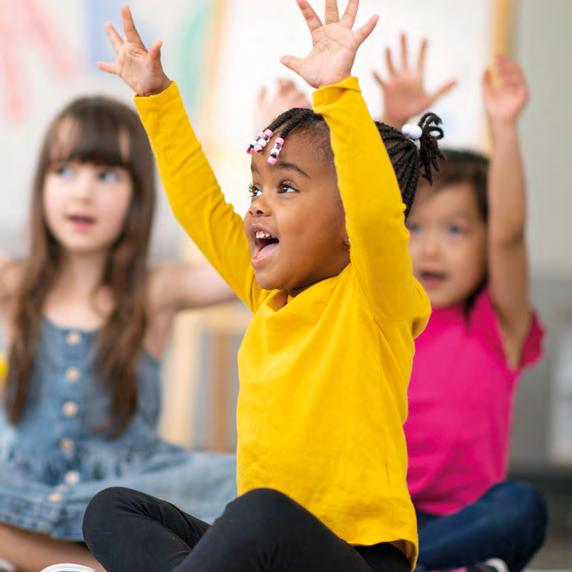

• Recently rated Outstanding by Ofsted
• Experienced, highly qualified staff
• Garden and covered outdoor play areas
• Forest School, Zumba, Yoga, Community Outreach activities and more

• 5-Star rated on-site kitchen, for all dietary requirements
• Open Monday to Friday from 7.30am to 6.00pm
As it says in our recent Ofsted report Children flourish and thrive at our warm and homely nursery, with personal care routines closely mirrored to those at home.

Our beautifully refurbished, family-run Victorian home has a wonderful, calm atmosphere, where our team of expert staff creates a caring and secure environment that encourages and supports children to achieve their full potential. Our kitchen uses locally sourced ingredients to create fresh, healthy and tasty meals on site, with all dietary requirements easily met - just like home.
Outside, in addition to our secure well equipped play area, we run the forest school - one of a wide range of activities we provide. It focusses on learning about and experiencing the natural world, inspiring each child to flourish and thrive.
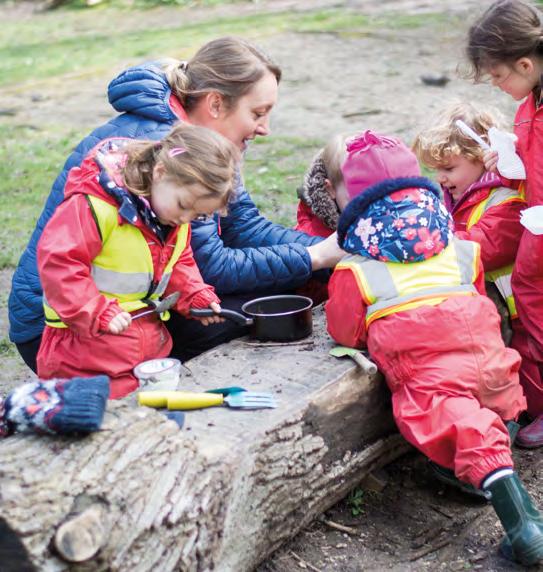
To find out more about our outstanding nursery, call 01442 891818 or email us at info@heirsandgracestring.co.uk

Everyone is welcome.

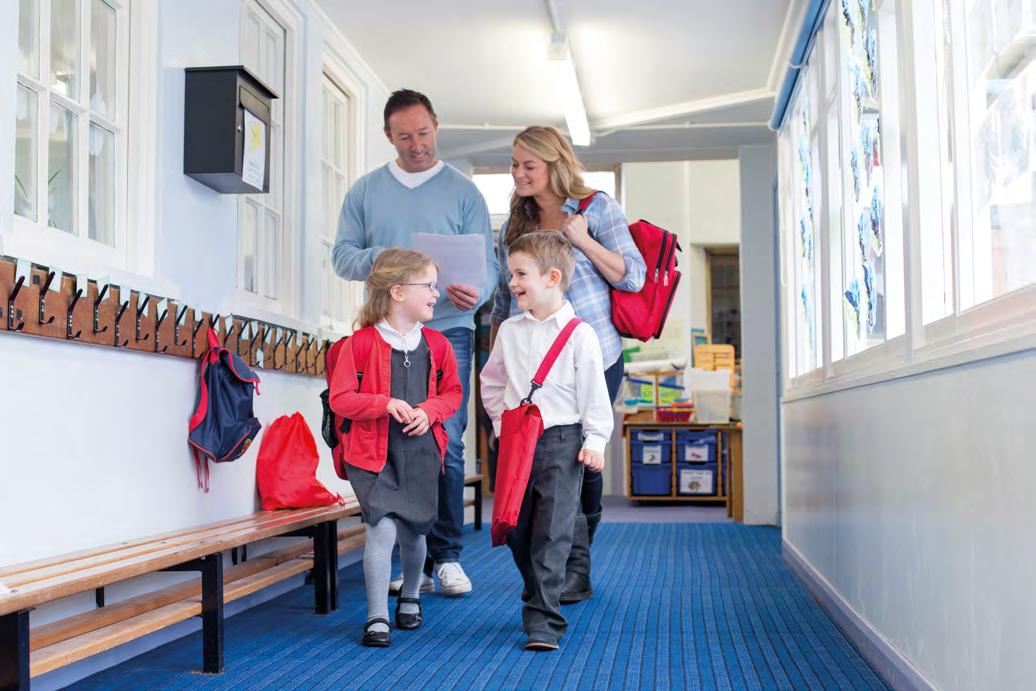
If you are looking ahead to your child’s first or next school, you have big decisions ahead. Do your homework now and the choices will become clearer, particularly when it comes to visiting your shortlist.
It can take a couple of visits to really nail your school choices. So attend Open Days for key schools two years in advance of your child’s start date so you have time to come back to an Open Day the following year. Bear in mind that independent schools are generally non-selective at Reception, so get your name on waiting lists early. It can be good to visit the school and see it in action on a school day too, if you can. You can find a helpful list of upcoming independent school Open Days on page 14.
Here are Families’ tips for preparation and getting the most out of your visit.
Study the school’s website noting where the gaps are in your knowledge and which questions you want to ask at the Open Day. Are there particular entry requirements? How long is the school day? How many students per class? Are there taster sessions for children before the start of term? Make a list of questions covering the things that are a priority for your family. If your child is moving on to senior school, you may want to ask about things like mobile phone policy. If it’s a state school you are visiting, check your understanding of the catchment area, as these can change from year to year.
Are the pupils around you happy and smiling? If it’s a school day, are they enjoying each other’s company? Do they seem articulate, confident and polite? Are the staff warm, welcoming and personable? Do they talk passionately about their subjects? At primary schools, is there colourful artwork and children’s projects on display?
Schools very much reflect the personality, vision, values and ethos of the Headteacher. If the Head is giving a talk, you will get a real sense of these by attending. If you feel the Head speaks your language, it’s likely you will go on to like the school.
Often, groups of students are recruited to show parents around, particularly at senior school level. Ask these students the same questions you ask the teachers, looking
out for differences in what you hear. Remember kids are known for saying it like it really is! Ask students how they found their first year? Worse thing and best thing? What is food like (very important to your child)!
Your child’s happiness, physical and emotional wellbeing at school are crucial. Ask how the school covers these needs. Is there is a specific pastoral care department and who runs it? Meet and chat to them or to the Head or another senior member of the team. With mental health issues on the rise amongst even the youngest children, it’s a must-ask question.
While you probably won’t be taking your four-year-old to visit schools, it’s useful to take older children if the school allows. Give them space to ask questions and, if appropriate, encourage them to engage with teachers and students as you walk round the school.
This becomes more critical at secondary school. Are GCSE and A level subjects very academic or more practical? For example, if your child loves music, cooking or design technology, are there the facilities and will your child be free to pursue these subjects to GCSE and A level? Where do pupils typically go onto? This can be a good indicator of the curriculum focus.
What interests does your child have and does the school cater for them? How much sport/PE is on offer? Which clubs are run? Is there a breakfast club? Plenty of outdoor space? What special trips are on offer?


What does the maths teacher say when you discuss your child’s challenges in maths? How does the English teacher engage with your child who is passionate about English? Does the drama teacher impress you?
Many parents have a strong feeling either way. But if you don’t, it’s worth visiting both types of schools and asking staff what they see as the benefits and downsides so you can weigh these up.






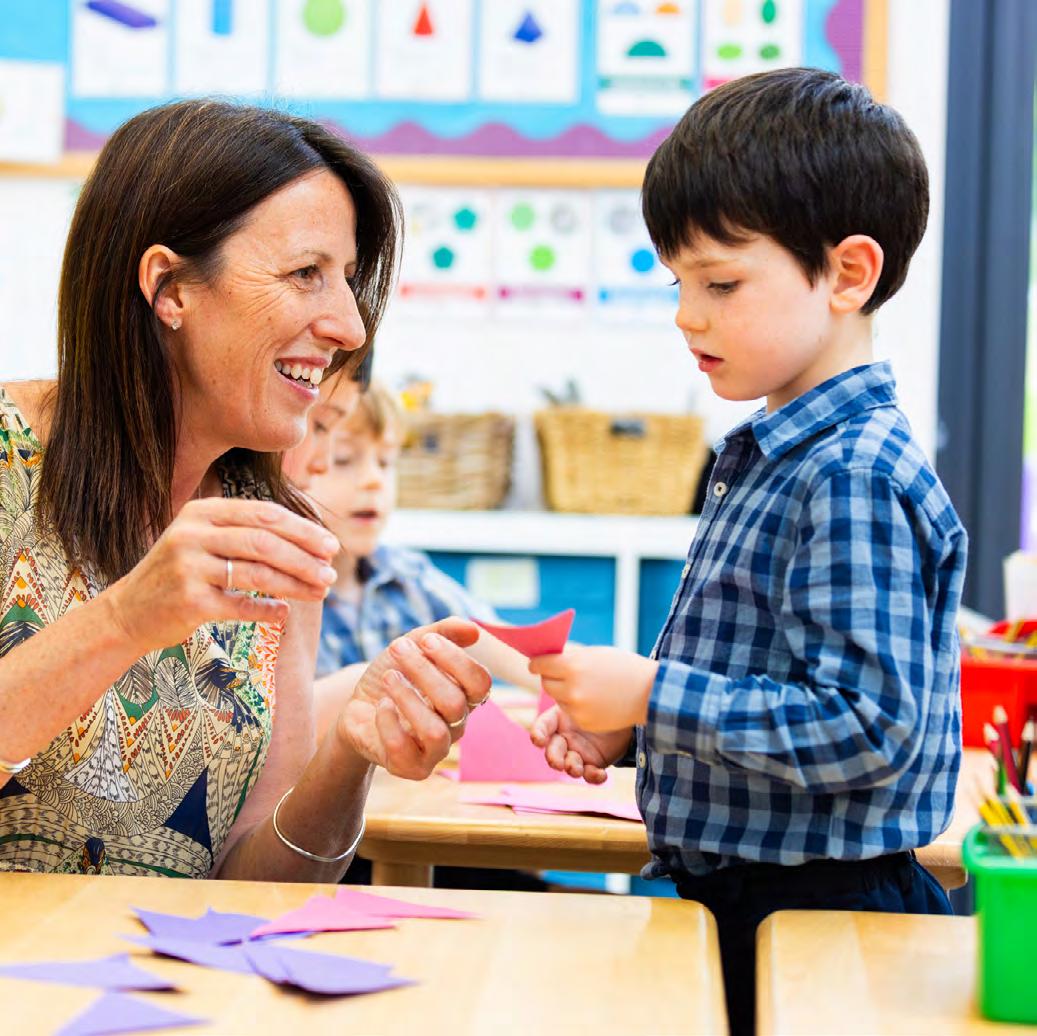

Just as none of us look the same, everyone is born with tendencies towards certain learning styles when developing literacy, language and motor skills. Recognising your child’s learning style is important in understanding how they access their learning, particularly if they appear to be struggling in certain areas.
Visual learners rely on what they see. Encourage them to use visual aids, sit at the front of the class and write down or draw information.
Kinesthetic learners learn best through doing and moving. They benefit from using tools, acting out or role-playing new information and having freedom of movement.
Auditory learners learn best through hearing and listening. Engage in discussions about what they are learning, read stories out loud and repeat information.
Solitary learners absorb information independently of other people. Let them make notes and recite back, provide quiet learning spaces and give opportunities for sharing their learning.
Verbal learners respond well to written or spoken words. Play word games, use rhymes, acronyms and mnemonics, read their writing aloud, encourage discussion and debate. Logical learners use logic and structures in order to learn effectively. Provide problem-solving tasks, challenge them to work things out for themselves and have them verbalise ideas and answers.
Identifying your child’s learning style: Observe how your child naturally interacts with the world around them and also note weaknesses: what types of tasks do they find challenging?
Berkhamsted
Pre-Prep & Prep Open Events, 29 and 30 September.

Book online: berkhamsted.com
Chesham Prep
Open Mornings:
4 and 7 October, 9.00-11.00. Book online: cheshamprep.co.uk/openday
Chesham, Co-Ed, 3-11yrs.
Davenies
Year 7 Open Evening: Monday 2 October, 6pm.
Whole School Open Morning: Saturday 14 October, 9am.
Beaconsfield, Boys, 4-13 yrs.
Email: registrar@davenies. co.uk davenies.co.uk
Gateway School and Preschool
Personal tours are available. To book, please call: 01494 867806 or visit: gatewayschool-bucks.co.uk/ admissions
Great Missenden, co-ed, ages 2-11yrs.
Heatherton Open Event: 30 September.
Amersham, Co-ed Nursery, Girls Prep, rising 3-11 years.
Book online: heatherton.com
Lockers Park
Stay and Play: Friday 29 September and Friday 13 October.
Book online: lockerspark.co.uk
The Beacon 30 September, 9.00-12.00. Amersham, Boys 3-13 yrs. To book, visit: beaconschool.co.uk
Thorpe House
Open Days: 7 October and 10 October.
New Sixth Form Information Evening: 21 November. Book your place at: thorpehouse.co.uk
Westbrook Hay: Saturday 30 September, 9.30am-12.30pm.
Hemel Hempstead, 3-13 yrs. westbrookhay.co.uk
Watch how your child expresses themselves. Children will be more expressive through their natural learning style. Auditory learners express themselves best through words whilst visual learners are more apt to reveal their emotions through facial expressions. Kinesthetic learners use more body language and may seem unable to stop themselves fidgeting.
Consider your child’s interests. These will likely reflect their learning styles. Auditory learners usually show an interest in music and sounds. Visual learners often have interests both in reading, watching TV and looking at interesting objects. With kinesthetic learners, look for an interest in physical activities.
See how your child solves problems. Children lean into their learning styles. Auditory learners tend to talk through and discuss possible solutions whilst visual learners use their eyes to solve problems. Kinesthetic learners will usually try to solve problems with their hands.
Lisa and Catherine are co-founders of Emparenting < emparenting.co.uk, supporting children, parents and families with the insights, skills and tools needed to nurture the development and well-being of the next generation.
While the information people receive might be the same, each of our brains processes information differently, influenced by several factors, one of which is learning style.
Your child’s tendencies and preferences for learning can be influenced by peers, cultures, age, their own experiences and available educational materials. What works for one child doesn’t necessarily work for the next.
Understanding the preferred styles of different learners can greatly impact their successes in the classroom as well as contributing to their own sense of personal development and achievement.
With the help of observant parents and teachers, children can benefit from understanding and engaging their natural tendencies. But, it is a rare child who solely works best with one style alone. By understanding and practising a range of different learning styles, a child will have a bigger ‘toolbox’ to call on, finding a combination that enhances their ability to understand, recall and use the information they learn.


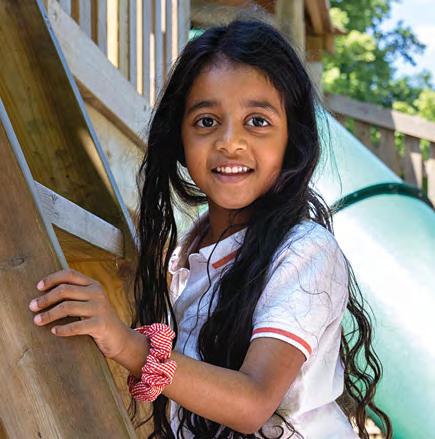


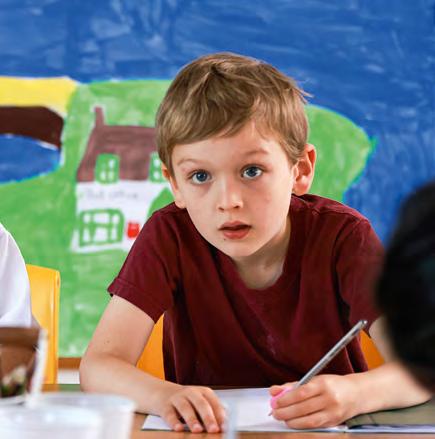

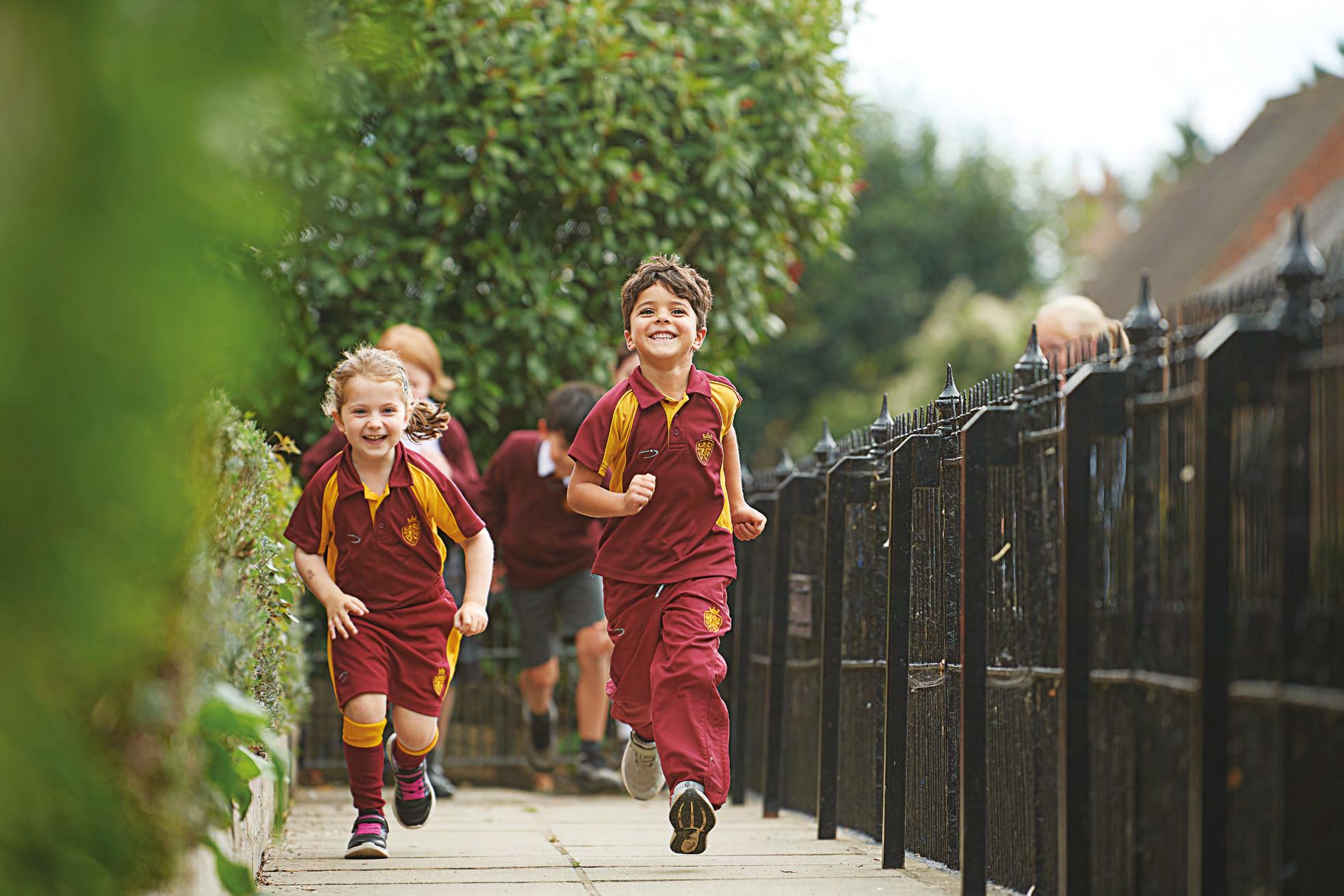


To a newcomer, the terminology used around entrance exams such as the 11+ and common entrance can be a confusing whirlwind of new vocabulary. Vicky Collins, former Thinking Skills teacher and Lead Tutor at Total Tutoring, has created our guide to demystify your child’s preparation.

Verbal and non-verbal reasoning are important parts of the 11+ test and are also commonly used by independent schools as part of their admissions process. Non-verbal reasoning (NVR) is an important part of many tests. In the 11+ for Buckinghamshire Grammar schools, it is 25% of the marks – that is the same weighting as maths! NVR is also a significant component in some independent schools and CAT4 tests.
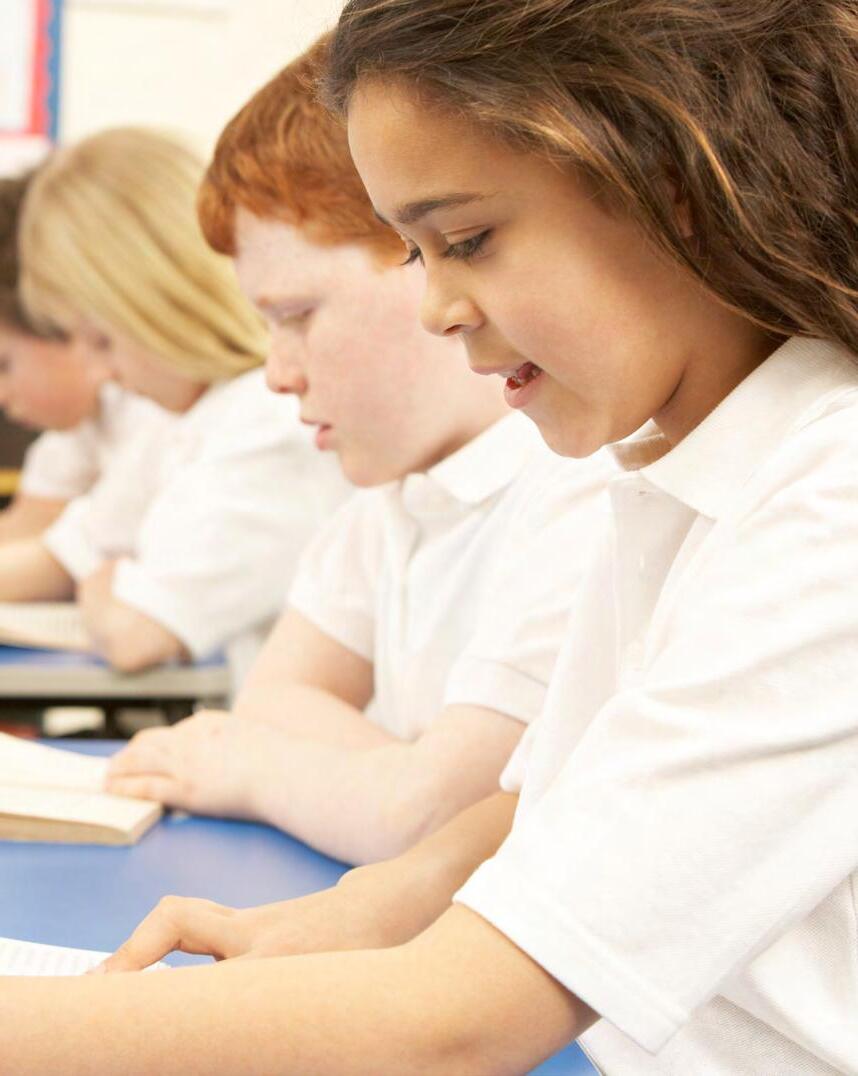
Verbal reasoning assesses a student’s ability to engage with and understand written information, including comprehension, vocabulary and logical thinking. In essence, problem solving using words or symbols. It can include following instructions to draw conclusions, using inference, spotting number or letter sequences, cracking codes and solving problems, (including simple maths questions). The questions are intended to test reasoning and skill rather than learned knowledge.
NVR or non-verbal reasoning focuses on a student’s ability to understand and reason using visual and abstract information. Because it is based on pictures, the child’s ability to understand English is less significant which is great news for children who are bi-lingual or struggle with language such as dyslexic and neurodiverse children. NVR involves recognizing patterns, solving visual puzzles, completing pictorial sequences and identifying relationships between shapes and figures. The tasks largely fall into the two categories: interpreting shapes and manipulating 2D and 3D shapes, to find differences and, or similarities.

Reasoning is like any skill, the more you practise, the faster you can spot the patterns, manipulate the shapes and confidently find the answer. Learning the common patterns, techniques to answer the questions and how to approach multiple choice answers are all key to achieving better scores. The Buckinghamshire 11+ is taken in early September and its timing is not ideal as many children take a few weeks to warm back up into the routine of school and warm up those academic skills. There are plenty of ways you can help your child.
Vicky Collins is from Total Tutoring in High Wycombe who provide quality tuition from qualified and experienced teachers. Find out more at totaltutoring.co.uk
Early years - Playing with building blocks such as Mega Blocks, Duplo, stickle bricks and magnetic tiles help develop 2D/ 3D visualisation. Easy jigsaws where you are looking at details to put them together ensures the child is paying attention to small details. Putting dominoes or counters in sequences and asking your child to complete the sequence or sorting items into categories.
Key stage 1- Continue with the building – you will have probably moved on to Lego (or similar nonbranded bricks), Knex is also another great toy. Spot the difference pictures are fun and can be completed together. Tangrams is a cheap and easy way to help your child to manipulate coloured tiles and, don’t forget about using what you already have, my children loved making a zip line for an action doll where they used problem solving as well as 3D thinking.
Key stage 2- Keep it fun! Children can become stale ahead of the exams in year six if they have spent years completing workbooks. Additionally, reasoning techniques are quick to learn.

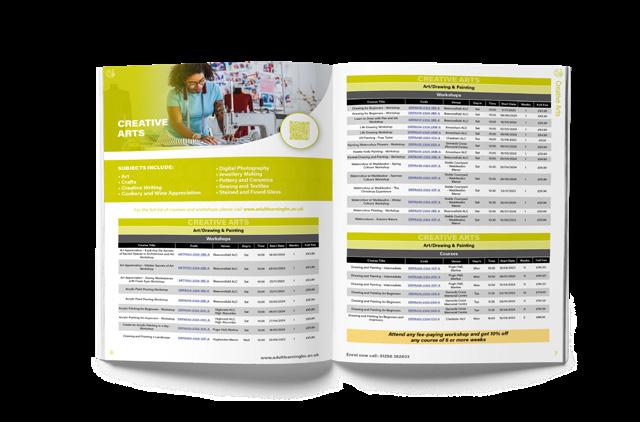
Playing games such as Minecraft or Tetris builds strategy and visualising manipulating 2D and 3D shapes; Dobble, jigsaws and spot the difference are all excellent to teach attention to detail. Puzzle books and strategy games build up problem solving skills and, if you dare, involve your child in building flatpack furniture; it is a great way to use those skills in a practical sense and get some DIY done!
Finally, there are some helpful workbooks out there, when the time is right. CGP, Bond and Schofield and Sims are some of my favourites. Try to pick the ones that feel light and fun, it will keep your child’s motivation high and is more likely to lead to them enjoying learning a new skill.

If you have decided on selective secondary school education for your child and made your applications, the next step is entrance exam preparation.
The 11+ exam will almost certainly contain mathematics and English assessments as a minimum. Both of these will often contain questions on parts of the national curriculum your child has already covered in school. But not always. You may need to supplement their learning at home via additional resources, targeted question books, past papers and mock exams.



While English and maths make up the basis of most 11+ entrance exams, they are not the only tests that your child might sit. Buckinghamshire Grammar Schools, for instance, also test for reasoning ability as part of their 11+ exams. This incorporates verbal and non-verbal reasoning.
Many independent schools also call in applicants for interviews or assessment days where students tour the school and take part in various activities. Some of this content is not taught in schools, so preparation outside school hours is vital in order to make sure your child is as prepared as possible. Start early and have a timetable. You might consider tuition, group classes or intensive summer courses, but it’s worth working on the preparation at home too.
There is no set rule as to what the 11+ will look like for entry to your school of choice. The only thing you can be relatively sure of is to expect a mathematical ability test and an English test as a minimum. Many state grammar schools use multiple choice assessments from exam boards including GL, CSSE, SET and Future Stories. All state grammar schools within a local authority often have the same test.
Independent schools can design their own papers which may include non-multiple choice questions. Some schools
have grouped together to form a ‘consortium’ where your child takes just one test to apply to a variety of schools eg The London Consortium.
Consult the websites of your chosen schools for details on what the exams will include. It’s always a good idea to ask the schools that you’ve applied for to add you to their mailing lists, so that you will be across any changes that are made to their exam format.
Before you start 11+ preparation:
If you are new to the process, there are a few initial steps to take before you plunge into the world of 11+.
Make sure that you are aware of the school registration dates: some of the dates to register with independent schools are over a year in advance.
Secondly, be aware of the exam material. Schools do occasionally change what is included in their 11+ exams and you do not want to spend time preparing for an exam which is not going to be relevant.
Lastly, consider more than one school application. Don’t put all your eggs in one basket: if your child doesn’t get offered a place at this one school and starts Year 7 in a non-selective school, it’s much harder to subsequently find them a selective school place.
Jemma Z Smith is Director of The Education Hotel. For further advice on the 11+ process, visit: < educationhotel.co.uk
According to Swim England, nearly two thirds of parents and guardians of children ages 7 to 11 haven’t been swimming with their children in more than a month. They’re missing out! Regular family swims can be enjoyed whatever the weather and help children develop their swimming ability more quickly.
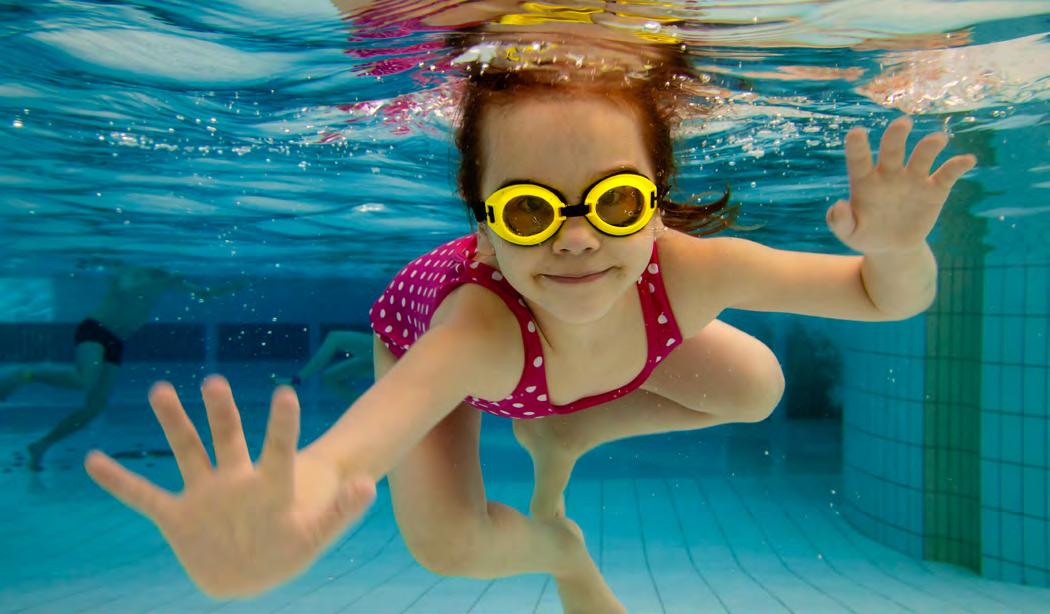
If you’re booking your child in for swimming lessons, here’s how Swim England recommends supporting them: Lessons are fun. Learning how to swim should be fun, so check with the lesson provider that games and activities are regularly included within their programme of teaching.
Timing is key. Book lessons for a time that is easy to fit around your family commitments.
Pay attention. If you are poolside during lessons, be ready to give your child a wave and lots of encouragement. Putting away your mobile will help your child understand that these lessons are important.
Celebrate their swimming milestones. Rewarding children keeps them motivated to improve in their lessons. Swim England’s Learn to Swim Awards and app give children regular celebrations of their swimming milestones.
Regular reports. Parents should expect regular updates either through reports or verbal feedback. If your child is struggling in lessons, talk to the swimming teacher and ask what you can do to help encourage them. If they haven’t started swimming lessons yet, visit the pool before lessons
Perform classes use a mix of drama, dance and singing to bring out every child’s potential. Run by experienced actor-teachers, the classes focus on developing the 4 Cs: confidence, communication, co-ordination and concentration.

From September, Perform 4-7 year olds will take to the skies with Phileas Fogg as they go on an amazing adventure Around the World. Whether walking like a wallaby in the outback or revealing the legends of the Egyptian pyramids, the new term will be filled with globetrotting fun!
Meanwhile, 7-12 year olds are going to the ball in a ragsto-riches rock show, Cinderella Rocks. This hilarious version of Cinderella features struggling band, The Ugglies, in their quest to top the charts with charming music mogul, Simon Prince.
With all abilities welcome, the children will work towards an end of term performance for family and friends. The only requirement is to get ready to have the best fun of the week!
Visit perform.org.uk/try to find your nearest venue and to book a free class. Venues: Amersham, Beaconsfield, Berkhamsted, Gerrards Cross, Tring or Wendover. Contact: T: 020 7255 9120. E:enquiries@perform.org.uk
to get your child used to the environment.
Don’t end lessons too early. Water competency is often misinterpreted by parents and guardians as child being able to jump into a swimming pool and being able to put their face in the water. The reality is very different.
Learning to jump into a swimming pool is an important safety skill that is often achieved in the early stages of your child’s learning to swim journey. It is a skill which mimics the motion of falling into water and teaches swimmers to get themselves safely to the side without panicking. However, there are many other water safety and survival skills that a child needs to learn before they are safe in water, such as floating and treading water.
So don’t be tempted to stop your child’s lessons before they are competent swimmers and have achieved Swim England’s minimum water competency standards. For further information, visit: < swimming.org
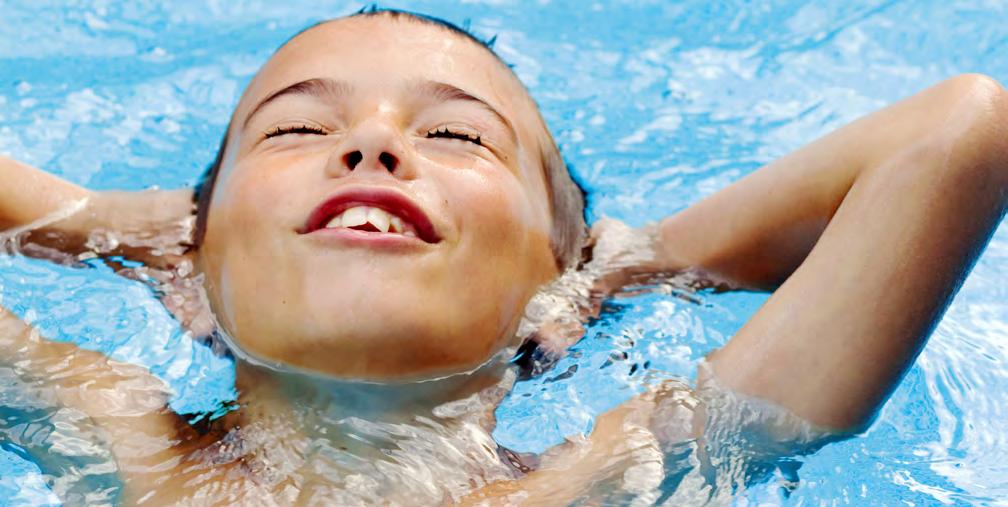
Swim England’s minimum water competency standards offer a clear set of skills that should be achieved before a child stops swimming lessons. The four competencies are:
• Perform a star float for at least sixty seconds;
• Tread water for at least thirty seconds;
• Have experience of swimming in clothing;
• Swim at least one hundred metres with ease and without stopping.
Research in September 2021 highlighted that more than three million 7 to 11 year old children were not achieving this standard, with just four percent of the age group being classed as ‘water competent.’ Swim England strongly recommends that where possible, parents and carers keep children in swimming lessons until they have completed Learn to Swim Stages 1 to 7 as a minimum. By this point children will have achieved all four of the minimum standards for water competency and will be much safer if they get into trouble. Read more at: < https://bit.ly/SwimPathway
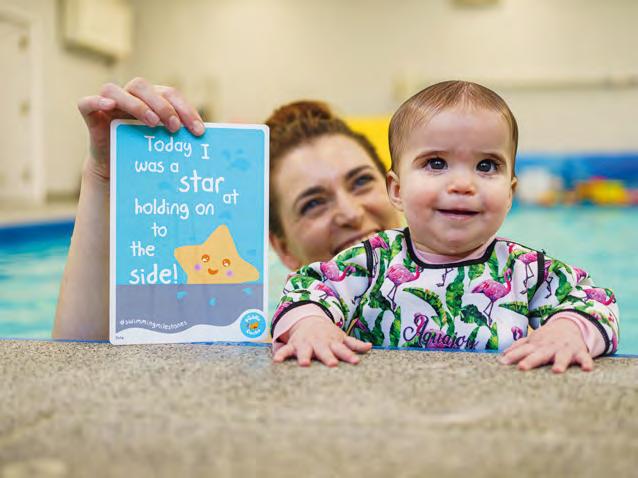





Are you looking for a new activity for your children to try? Or perhaps they have a keen interest in music, sport or performing? Whatever their hobbies, we have a great choice of local clubs and classes to suit everyone.
When you call, please don’t forget to say you saw them in Families Chiltern magazine.

Weekend Multisports classes held at Dr Challoner’s High School.
Little Sporties: ages 4 & 5.
Primary Class: ages 6 - 11
Sports Leaders: ages 12 - 16. 18 sports a year plus weekly team building challenges. All enrolments include a two-week trial. Join today at: < multisports.co.uk

Singing, dancing and acting classes for 4–18 year olds. Ask about their 2-week trial.
Classes in:
Amersham: ☎ 07887 500788. Aylesbury: ☎ 01525 790795. High Wycombe, Henley & Marlow: ☎ 07539 753718.
< stagecoach.co.uk
Child in year 4 or 5? 11+ approaching?
Total Tutoring offer after-school classes with expert teachers to develop confidence and academic understanding.
Book online at: totaltutoring.co.uk or ☎ 07391 966667
Email: total.tutoring.plus@gmail.com
TOTAL TUTORING
At TISKA Karate, children and adults alike learn the essentials of etiquette, respect, self discipline, self awareness, confidence, fitness, and self-defence.
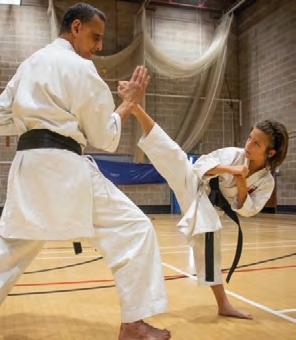
Photograph of their youngest Black belt, 8 year old Tyler Yamamoto. Contact: office@tiska.com for further details of your 1 month free trial.
Award-winning Music classes, 3m-5yrs. Amersham, Beaconsfield, Gerrards Cross & Marlow E: amersham@monkeymusic. co.uk ☎ 01494 716861
Aylesbury, Aston Clinton, Haddenham, High Wycombe, Princes Risborough, Stone, Tring, & Wendover. E: aylesbury@ monkeymusic.co.uk ☎ 01494 819138 Berkhamsted, Chesham, Hemel & Rickmansworth.
E: berkhamsted.rickmansworth@ monkeymusic.co.uk ☎ 01753 889481 < monkeymusic.co.uk

A place where shy children blossom and outgoing children sparkle. They give their students the opportunity to grow and express themselves through weekly dance and drama classes, stage shows and exams.
Sign up for a free trial today and see how Step to It can benefit your child.
☎ 07743 065766
< steptoit.co.uk
Acting classes with West End actors and TV professionals. Musical theatre and dance classes also on Saturdays. Act, dance and sing in separate classes for pre-school, infants, juniors and teens across all disciplines. Celebrating 100% pass rate in LAMDA and IDTA examinations year-on-year.
☎ 01494 876487
< trapdoordrama.com
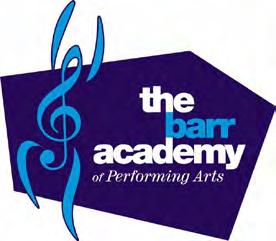
Musical Theatre classes from 3 - 18 years on Sundays in Stokenchurch led by a West End professional. The classes aim to encourage & inspire all to become creative, imaginative & motivated in all aspects of performing arts & life.
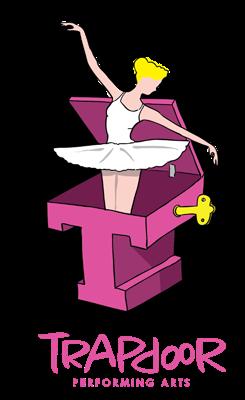
Book your trial class today!
☎ 07583 942447
< TheBarrAcademy.co.uk
E: info@thebarracademy.co.uk
Seriously FUN Swimming Schools offer children's swim classes in: Amersham Aylesbury, Gerrards Cross, Wycombe, Maidenhead and Slough. Only 6 per class, £58 per month and 50% off your initial payment with code DISCOUNT50.

Book your swim lessons online at:
< seriouslyfun.com
Girlguiding has been a part of millions of girls’ lives for one hundred and thirteen years and counting. Set up because girls wanted an equal world with the same opportunities as boys, impressive progress has been made since it began.
In Girlguiding’s annual Girls’ Attitudes Survey, two in three girls and young women ages 11 to 21 said that being part of a youth organisation makes them feel accepted and more connected to others. Girls in Girlguiding are more confident than their peers, with nearly nine in ten saying they like being the way they are, compared with just six in ten who have never been in Girlguiding.
Youth groups such as Girlguiding and Scouts are equipping young people with transferable life skills such as leadership, money management and teamwork. A recent report from Demos has demonstrated how skills learnt from Scouting can make a significant difference to employability.
Guides today can still earn badges, in an updated programme which includes mindfulness, self-care and media criticism. Girls are also supported to develop emotionally, mentally and physically so they can make a positive contribution to their community and the wider world.
Empowering girls for more than a hundred years, Girlguiding is committed to doing the same today, with a keen focus on what drives, challenges and excites girls.
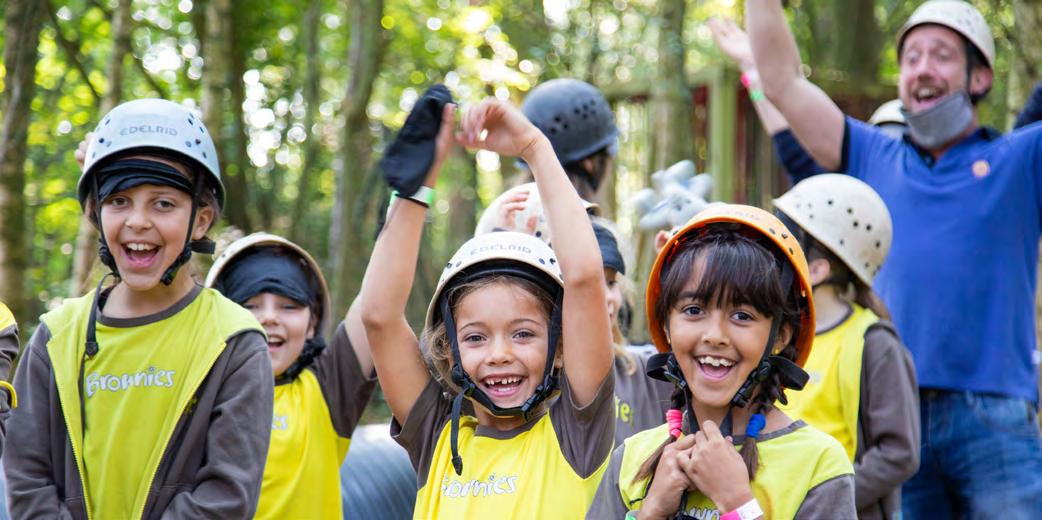
Whether that’s the thrill of trying a new activity, singing around a campfire, enjoying the buzz of earning a new badge or emailing her MP about the issues she cares about; it’s a space where she can be herself, get creative, explore and most of all, have fun.
Meanwhile, Scouting embraces an inclusive Skills for Life strategy that encompasses teamwork, leadership and resilience and this has not gone unnoticed in the world of employment. The report highlighted that over half of Scouts felt ready for the world of work compared to a third of those who did not participate in any extracurricular activities. With many employers struggling to hire people with teamwork skills or emotional resilience, these transferable skills are currently in huge demand.
For more information about joining Girlguiding visit: girlguiding.org.uk and Scouts: scouts.org.uk

Where do you stand on giving parenting advice to another parent? Should you try to help or steer clear altogether and give them the space to find their own solutions? If you are minded to have your say, we’ve got some suggestions to reduce the risk of sounding like a know-it-all. Two mums give their, ahem… advice!
We all know at least one baby who slept easily and fed beautifully from week one. If you are lucky in that respect, it is particularly tempting to offer advice but please don’t think you’ve discovered some amazing secret for solving all the problems of another parent.
Jumping in with advice can be the opposite of helpful; it may sound like you think you know the situation better than the parents. In reality, you can’t know all the factors at play.

It’s easy to blame ‘parenting’ when often there are biological issues that lie behind struggles with feeding, sleeping and meltdowns, many of which may not emerge for years. For example, developmental delays, sensory issues, hearing loss, ADHD, autism, eczema, reflux and allergies are just a few of the many (and sometimes invisible) possibilities. And it can take years for parents to figure out causes or find solutions. During that time, it’s typical for parents to feel judged, so while offering advice to an already sleep-deprived parent might make you feel better, it’s more likely to make them feel worse.
Advice, particularly when it hasn’t been asked for, can often land when energy levels are already low, putting the onus on the parent to have to justify why what has worked for you just doesn’t work for their child.
Anna, mum of two boys, from Devon.
Getting advice at the right time and from the right people can be helpful. For example, when meeting up with other new mums to feed your baby and enjoy a coffee together, it seems natural to talk about what you’re going through and to compare experiences.
When you are all just figuring it out together, it feels less judgemental; more of a safe space in which to swap stories about small wins and epic fails. Just occasionally a golden nugget of advice will drop into your lap.
On the flipside, lots of parenting advice either won’t work for your particular situation, or your child, or it may be out of date. Granted, it can be irritating when advice is worded as if it’s a universal law applicable to everyone, therefore implying you are a ‘bad parent’ for not doing whatever it is. That said, it would be a shame to miss out on something useful just because of another person’s misplaced sense of conviction or poor timing.

I try to see advice as a potential tool rather than a rule and remind myself it’s in my power to be curious, to test and then reject or accept it. Even when the advice doesn’t work, ruling it out is one step closer to success. In this way I can see parenting as a process of constant refinements rather than a reflection on some kind of innate ability.
Sarah, mum of three, from Oxfordshire.
‘Jumping in with advice can be the opposite of helpful.’
‘Just occasionally a golden nugget will drop into your lap.’


The number of women in work has hit a record high at more than seventy five per cent in the UK. It’s great that we are gaining more equality in the workplace – except for one factor: women are still doing the lion’s share of the housework and organisation around kids, as well as the emotional heavy lifting.

Research from Stanford University has found that women still tend to take on a much greater proportion of childcare and household management in heterosexual relationships because they don’t feel entitled to put their own needs and time first.

The impact this overload can have is burn-out, numbness, emotional flatlining and even a dial down of their capacity to enjoy time with their kids. Women speak of feeling so overloaded that they want to quietly disappear in a puff of smoke.
One Mumsnet thread called: ‘Am I unreasonable to just pack my bags, disappear and leave everyone to it?’ crystallises the feelings of many women who feel too overwhelmed to enjoy their lives and who fantasise about being free of demands. A flurry of replies like: ‘If you let me tag along, I’ll bring cake’ and ‘I might do the same’ showed how much it touched a nerve.
With more paternity leave, dads working from home and outdated gender roles breaking down, we are moving in the right direction. But if you’re not there yet, what’s the best way to share the load more evenly?
Your brain has finite resources. It can’t multi-task, it can only rapidly switch attention, which is exhausting. When it feels like you have too many tabs open, your cortisol level can stay permanently raised, interrupting the workings of your reward system.
We’re all familiar with the concept of to-do lists. But sometimes we need to write a ‘no-do’ list to intentionally reduce our mental load and free up more time for joy. The number of chores on your list may have built up because it feels easier to do them yourself and you haven’t had the time to train the people around you to share them.
When drawing up a no-do list, write a list of the things you do each week. With each, ask yourself: Do I actually want this or is it just expected of me?

Then decide which ones you can cross off and which ones you can delegate. Before dropping tasks, check first that there won’t be any negative consequences for you or anyone around you, as a result.
Have a re-balancing conversation.
In an amicable, constructive way, draw up a list together of everything you and your partner both do to keep your home going. This may include micro-tasks, like being the one who always applies sunscreen to the kids, who arranges birthday parties and organises childcare.
Compare lists and consider ways to share the jobs more evenly. Point out that having to remind your partner to do tasks puts more pressure on you and that if they take responsibility for something, like the laundry, they should see it all the way through from start to finish. Remember too that partners are not mind-readers.
Your partner may not have noticed the toll that the build-up of unequal balance is taking on you. Co-parents may also lack confidence or think they won’t do some tasks as well as you. Be prepared to offer non-critical training! Remember that not all tasks need to be done exactly the same way.
Tanith Carey is the author of Feeling Blah? Why Anhedonia has left you joyless and how to recapture life’s highs (Welbeck £16.99) available from: < bookshop.org
As lawyer Eve Rodsky points out in her book Fair Play: ‘Women are supposed to work like they don’t have kids and parent like they don’t work.
‘While men’s time is treated as diamond, women’s time is treated like sand of which there is an unlimited resource.’
‘Women don’t want to have to keep micromanaging, being the planners, asking others in the family to do the things they should already be doing just to get things done.’
Psychotherapist Nancy Colier also describes this challenge in her recent book The Emotionally Exhausted Woman.
‘We spend our lives taking care of everyone’s needs, playing our roles as caretakers of the world, being good girls and working on self-improvement but often at the expense of our own needs being met.’

Families chats with George Webster, the 22-year-old TV presenter, actor, dancer and ambassador for Mencap. George was catapulted into the public eye when he spoke about Down syndrome in his myth-busting video for BBC Bitesize. A trailblazer, he is now the first ever CBeebies presenter to have Down Syndrome. George won a BAFTA (Children and Young People Awards) for Best Presenter. Congratulations on winning your BAFTA! How do you feel about that achievement?
I feel really proud and really honoured to achieve the award for presenter. I work with so many brilliant people at CBeebies and I feel like things are starting to improve for people like me in the media industry. Tell us about your journey to become a presenter on CBeebies.

I always loved acting, dancing and performing at school and since then one thing has led to another. While volunteering at Parkrun, Sky filmed me for a documentary and I then became a Mencap ambassador. When my BBC Bitesize video busting the five myths of Down
syndrome got five million hits, CBeebies got in touch inviting me to be a guest presenter, and now I’m a regular!
Who has been most supportive in helping you achieve your success?
My parents have been really supportive throughout my life and they always keep telling me ‘just be yourself.’ I always am and I want to say thank you to them for their love and support. Also, my support teachers at school, my friends, the NHS and local charities.
What advice would you give to encourage other youngsters who are facing challenges and want to pursue similar careers?
Be yourself and dream big! We can all dream big
so don’t let anyone else decide for you as it’s your life. Get involved with local performing arts groups too.
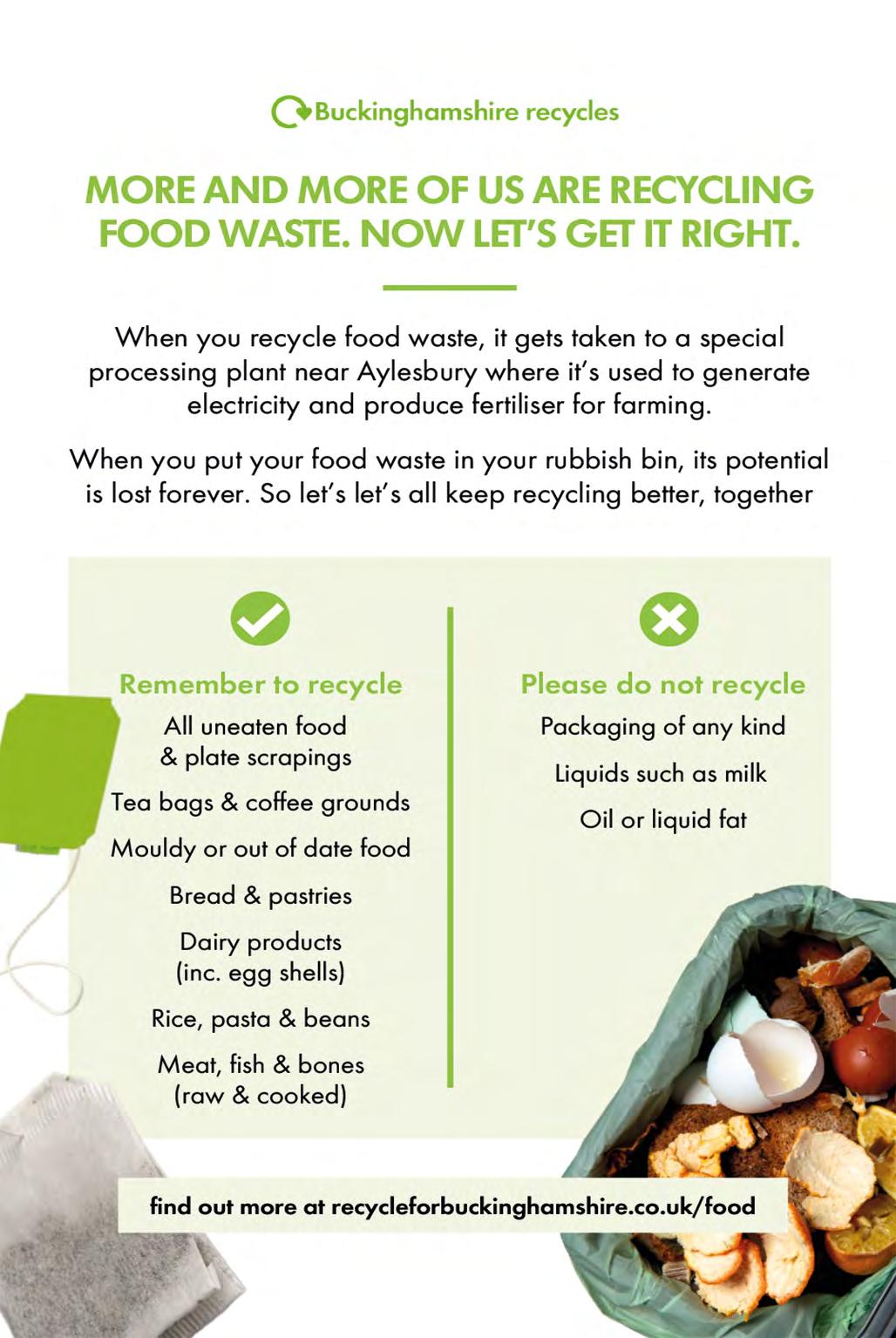
What do you enjoy most about presenting?
I love everything about presenting at CBeebies! I’ve met loads of brilliant people and now we’re great friends. I also enjoy showing the viewers at home that people like me can be represented within the media and that ‘difference’ can inspire their kids’ lives. Their kids can have many role models, no matter who and what they are.
You’ve now written a picture book called This is ME! Tell us more.
This is ME! is about me, my friends and family when I was younger. It’s about celebrating differences no matter what we look like and who we are. It’s also about each person having their own glow inside that we all need to see.
The book illustrations are the perfect accompaniment to your rhyming words. How did the partnership come together?
My publisher, Scholastic Children’s Books, paired me with the wonderful illustrator, Tim Budgen. Working with him and my co-author, Claire Taylor, has been brilliant and a real collaborative effort.
What has been the best moment of your career so far?
There are so many! Working with CBeebies, writing a book, winning a BAFTA, being on Casualty, going to the premiere of S.A.M
and dancing on stage with Talent Hub. Plus, going to UDance National Finals to represent Yorkshire as the first inclusive dance group with Meshdance and watching my appearance on Strictly Come Dancing back on Christmas Day.
You are ambassador for the charity Mencap, which works to improve the life of young people with learning difficulties. Tell us what this work means to you.
It means a lot to me as I have many friends with a learning disability and they’re all brilliant. People like us exist and working with Mencap means our voices get heard. I want people to understand us more rather than be scared of us.
Where would you like to see your career heading in the future?
I’d love to do more presenting and acting work. I would love to be in Death in Paradise, EastEnders and Doctor Who. Or I could be the new James Bond –why not! Also, I’d love to compete on the main show of Strictly Come Dancing. If you had to bust one myth about having Down syndrome, what would it be?
‘People with Down syndrome are always happy.’ This just isn’t true! We have a range of emotions like every living person has.
What do you do to relax?
I love going to the theatre or cinema, watching films and tv and listening to music. Oh, and thrashing my dad at FIFA!


































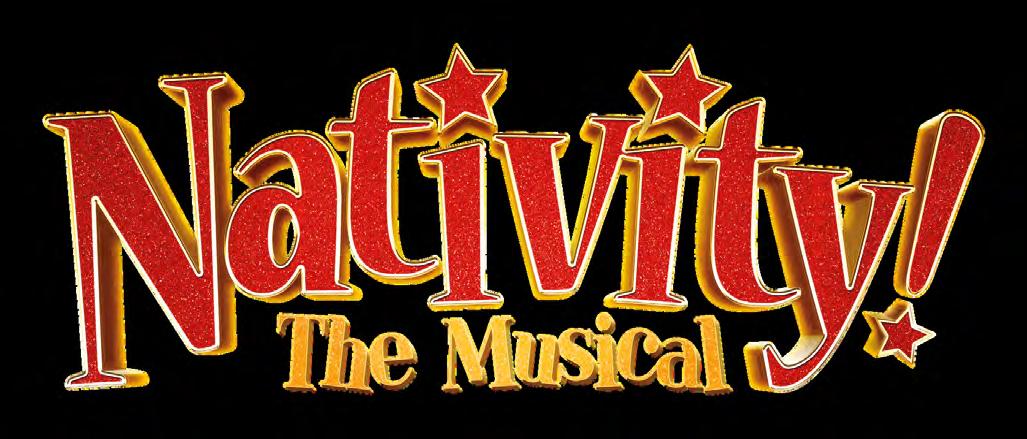





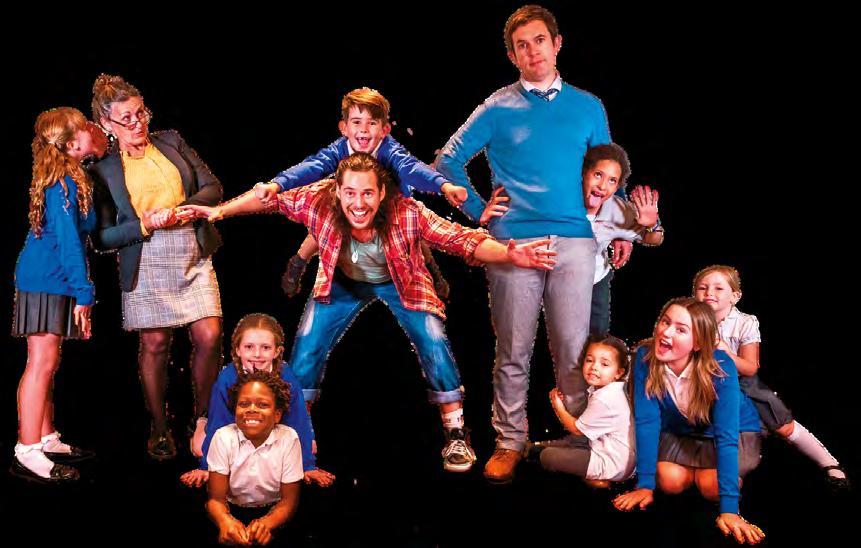



Monday 4 to Saturday 30 September
RARE BREEDS MONTH
Odds Farm Park, Wooburn Common. Celebrating rare animal breeds at the park. Pre-book tickets online. oddsfarm.co.uk
Friday 8 to Sunday 17 September
HERITAGE OPEN DAYS
England’s largest festival of history and culture, embracing the theme of Creativity unwrapped. FREE entry to many amazing locations. Check website for full listings and activities: heritageopendays.org.uk
Friday 8 to Thursday 14 September
HERITAGE OPEN DAY Bletchley Park, Milton Keynes. Pre-book FREE tickets online. bletchleypark.org.uk
Friday 8 September
TRICKS AND INVENTIONS
Roald Dhal Museum, Great Missenden. Catch Esio Trot, join in with storytelling and get messy potion making. Twitchy Toddlers is on second Friday of the month during term-time. 6mths-4yrs. 10am-noon. Single event ticket, £5 child, (adults & babies less than 6mths are free.) Free tea or coffee for adults.

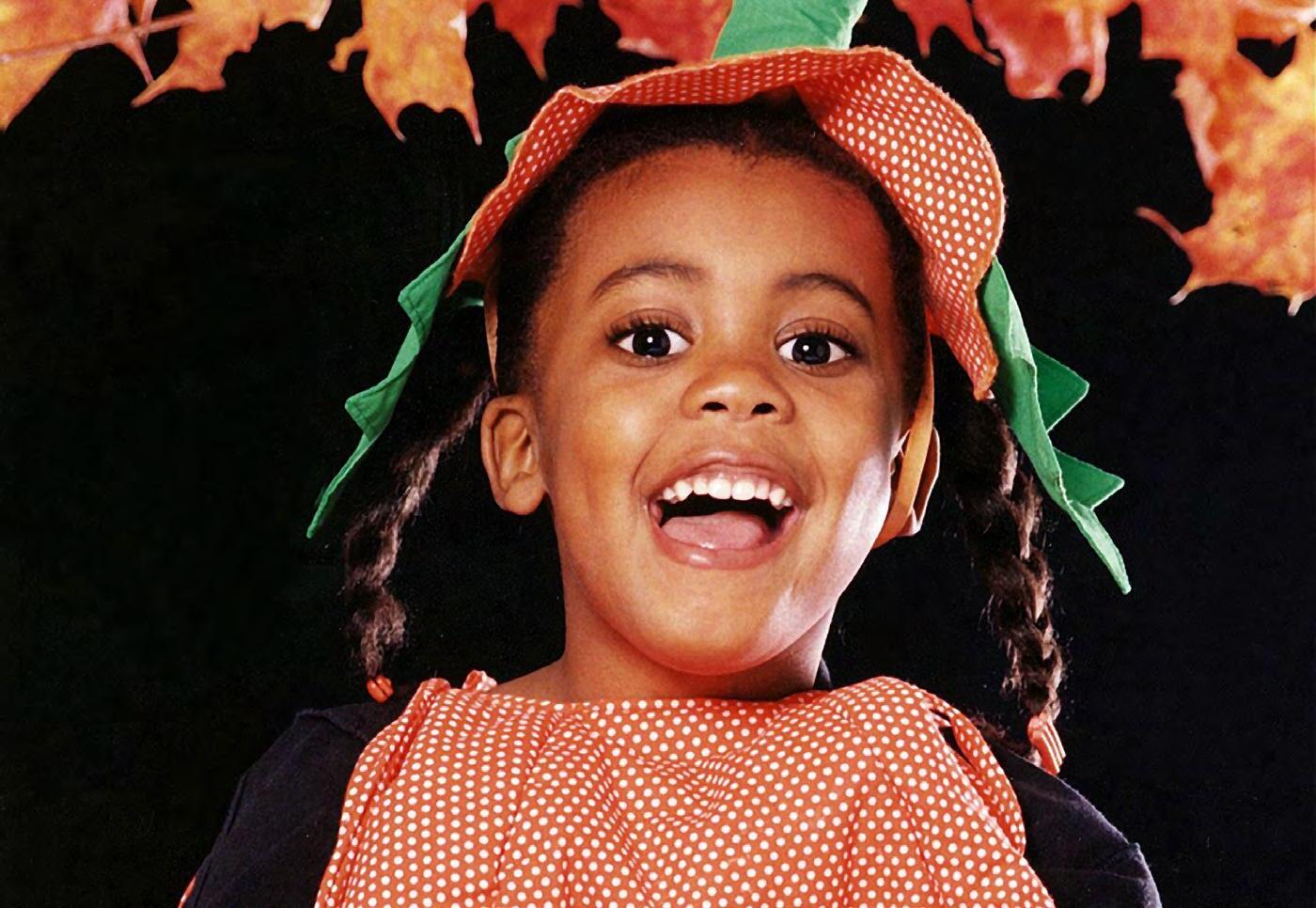
Booking required online: roalddahlmuseum.org
Saturday 9 September
BUCKINGHAM OLD GAOL - ANNIVERSARY FESTIVAL
Buckingham Old Gaol, Buckingham. Festival to commemorate the 275th anniversary of the Gaol, includes children’s activities with a reenactment of prison escapes and much more. 10am-4pm. No booking required. FREE. Upstairs not accessible for all due to passageways. buckinghamoldgaol.org.uk
HERITAGE OPEN DAY
Hughenden Manor, High Wycombe. 10am-5pm, drop-in, FREE entry. nationaltrust.org.uk/hughenden
THE MUDDLED MUSEUM Market square, Aylesbury. An opportunity for all to touch real items of archaeological interest. 10am-4pm. No booking required, FREE. heritageopendays.org.uk
TREASURE HUNT
Buckingham Canal, Cosgrove. Explore the canal and its history. 11am-1pm, FREE.
Pre-booking recommended via their website. heritageopendays.org.uk

YOUNG RANGERS AND TEEN RANGERS
College Lake Nature Reserve, nr Tring. Wildlife clubs for ages 8-11 (Young Rangers) and 11-17 (Teen Rangers) who love nature. 10.30am-12.30pm:Young Rangers. 1.30-3.30pm: Teen Rangers. Tickets close 48 hours prior to session. £7 per child. bbowt.org.ukSunday 10 September
Sunday 10 September
AMERSHAM HERITAGE DAY
Old Amersham High Street, Amersham. Family fun in Amersham Old town, including fairground rides, farmers market and classic cars. 11.30am-5.30pm. No booking required. heritageopendays.org.uk
HEARING DOGS FOR DEAF PEOPLE LATE SUMMER SHOW
Hearing Dogs for Deaf People HQ, Princes Risborough. Fun filled late summer show for the Hearing Dogs for Deaf People, including doggy demos, traditional children’s games and rides and a treasure trove of craft stalls. 11am-4pm. Adult £5, Child £3, Under 5s free. Family ticket £15. Dogs welcome. hearingdogs.org.uk
PAW PATROL’S CHASE AND SKYE
Buckinghamshire Railway Centre, Quainton. Paw patrol is on a roll at the Railway! Pre-book online, Adult £15.50, Child (3yrs) £10.50, family tickets available, see website. bucksrailcentre.org
THE GARDEN PARTY
Ashridge House, Berkhampsted. The Hospice of St Francis garden party, family fun with puppets, craft and dog shows. 12am-5pm. Advance tickets Adult £7, Child £3, under 3s/carers free. stfrancis.org.uk
Monday 11 September
NATURE CLUB
Lowndes Park, Chesham. Outdoor nature club for toddlers. Tickets £7.50, sibling rates and bundles available. Also on 18, 25 September and 2, 9, 16 October. bookwhen.com/natureclub
SAFARI PLAY: SEND EVENING
Kiln Lane, Milton Keynes. SEND evening at Safari Play, 6pm. Tickets £6.25 child, Adults free. safariplay.co.uk
Tuesday 12 September
NATURE TOTS College Lake Nature Reserve, nr Tring. 10.15am. Aimed at 2-4yrs (walking upwards). £7 per child. Max 2 adults free. Also on 10 October. bbowt.org.uk
STORY TIME AND TREASURE TRAIL St Mary Magdalene church, Willen. 3.30pm-5pm No booking required. heritageopendays.org.uk
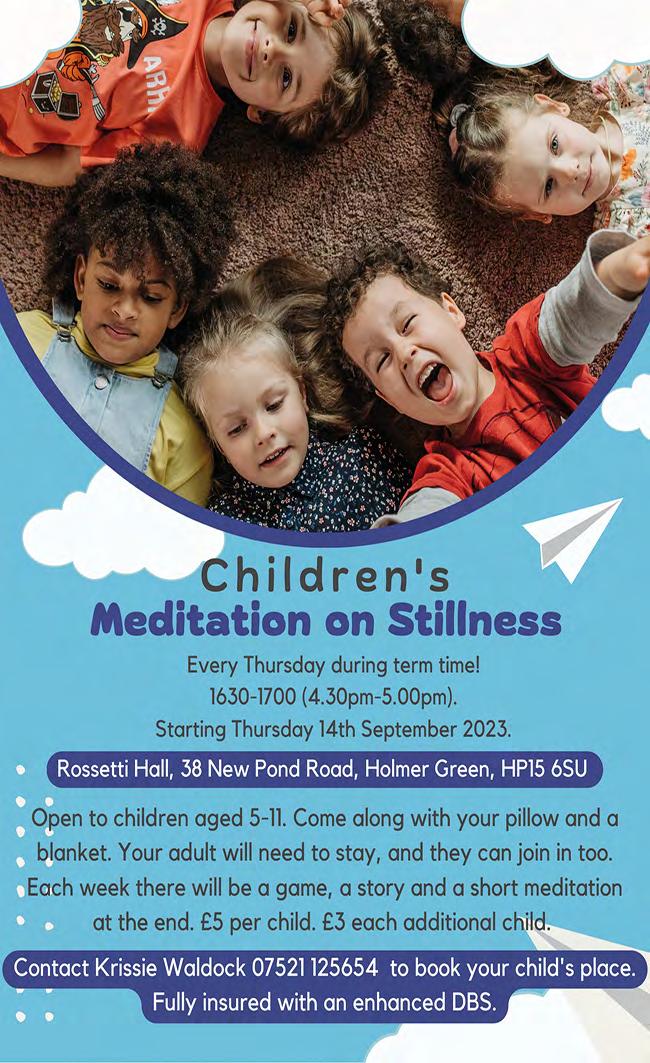
Hands-on discovery and amazing science
Aylesbury HP20 2QP discoverbucksmuseum.org
Wednesday 13 to Saturday 16 September
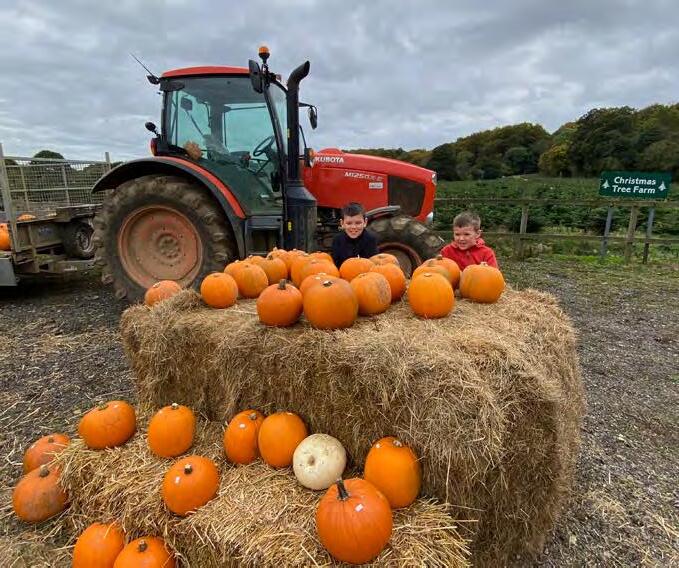
OPEN AIR CINEMA
Waddesdon Manor, Aylesbury. Showing: The Great Gatsby, Elvis, Harry Potter and the Philosophers Stone & Top Gun: Maverick. Grounds open at 6pm. Film from 7.30pm. Adult £18.50, Child £12.50. See website for more details. waddesdon.org.uk
Thursday 14 September
MEDITATION ON STILLNESS
Rossetti Hall, Holmer Green. Weekly meditation classes for 5-11yrs including a game, story and a short meditation. 4.30-5.30pm, £5/child. £3/siblings. To book, contact Krissie Waldock: 07521 125654.

Saturday 16 September
HARRIET MUNCASTER: AUTHOR READING AND BOOK SIGNING
Discover Bucks Museum, Aylesbury
Join internationally bestselling author and illustrator Harriet Muncaster as she celebrates the release of Victoria Stitch: Dark and Sparkling. This special event features draw-alongs, readings and quizzes plus a book signing after the session. 11am–12pm. Recommended for ages 9-12yrs. Tickets start at £6, under 4yrs free. To book visit: discoverbucksmuseum.org
MARLOW CARNIVAL
Higginson Park, Marlow. Fun-filled family day. 11am, drop-in, free. mymarlow.co.uk
PARALYMPIC ARTS AND CRAFTS
Aylesbury library, Aylesbury.
A day of games and crafts to celebrate Paralympic heritage. 10am-2pm, drop-in free. buckinghamshire.go.uk
TACTILE EXPLORERS
Tring Natural History Museum, Tring. A special event by the museum welcoming blind and partially sighted children and their families to get hands
on with the museum specimens. 11-11.45am. FREE. Booking essential. nhm.ac.uk/tring

Saturday 16 and Sunday 17 September
KOP HILL CLIMB FESTIVAL
Kop Hill, Princes Risborough. Non-competitive hill climb for classic/vintage cars, displays and entertainment for all the family. 9am-6pm. Buy tickets online or on the day. kophillclimb.org.uk
RUISLIP LIDO OPEN DAYS

Ruislip, Middlesex.
Interested in the Lido’s railway? Get a behind the scenes look at how it’s kept running. FREE entry, standard fees apply to ride the railway. ruisliplidorailway.org
Sunday 17 September
BUCKS GUILD OF WEAVERS, SPINNERS AND DYERS
Haddenham Village Hall. View members crafts, see demonstrations of heritage craft skills and enjoy children’s activities. 11am-4pm, drop-in, FREE entry. nationaltrust.org.uk
Sunday 17 September (Cont’)
HERITAGE OPEN DAY
Claydon House, nr Buckingham. 10.30am-5.30pm FREE entry. Booking not needed. nationaltrust.org.uk
HERITAGE OPEN DAY
Stowe Landscape Gardens, Buckingham. 10am-5pm FREE entry for Stowe Gardens, Stowe Parish church, the Gothic Temple and Stowe House. Booking recommended for Gothic temple and Stowe house. nationaltrust.org.uk
Monday 18 September
MINI MONDAYS
Iver Environment Centre, Iver. Craft, tails and stories. 10-12pm, 2-5 yrs, £6.50, pre-book online. Also on 2 and 16October. iverenvironmentcentre.org
Tuesday 19 and Wednesday 20 September
BLIPPI THE WONDERFUL WORLD TOUR Wycombe Swan, High Wycombe. Multiple viewing times. See website for booking details and prices. wycombeswan.co.uk
Thursday 21 September
HOME ED DAY
Bekonscot Model Village, Beaconsfield. ‘A question of Scale’ for Home educated children and their families. Pre-book tickets online, £7.40. bekonscot.co.uk
Saturday 23 September
BACK TO THE OLD SKOOL FAMILY RAVE Aylesbury Waterside Theatre, Exchange Street. Family fun for the post rave generation of families. For families with 0-8yr children. Pre-book tickets online from £15.95 atgtickets.com/aylesbury
Saturday 23 and Sunday 24 September
FANTASTIC AND FABULOUS 1940’S WEEKEND
Bletchley Park, Milton Keynes.
A chance to visit the fabulous 40s, complete with food, entertainment and family activities. Adult £25.50, Child 12+yrs £17, Under 12yrs free. bletchleypark.org.uk
Sunday 24 September
LDN WRESTLING
Elgiva Theatre, Chesham. Live Wrestling special for all the family! 2pm. Adults £16.50, children (under 16yrs) £13.50. elgiva.com
Tuesday 26 September
CAVE GIRL
Elgiva Theatre, Chesham.
Whisk back to the Stone Age. Amazing interactive musical for 4-10yrs and families.
11am and 4pm. Adults £12.50, Children (under 16yrs) £9.50. Pre-book tickets online. elgiva.com
Weekly drama, dance and singing classes
PERFORM
Confidence-building drama classes for 4-7s and 7-12s. A unique mix of fun drama games, dance and singing specially designed to boost confidence, communication, concentration and coordination. Venues: Amersham, Beaconsfield, Berkhamsted, Gerrards Cross, Tring or Wendover. To book a FREE class visit: perform.org.uk/try
Thursday 28 September
DISCOVER DUCKS – UNDER 5YRS SESSION
Discover Bucks Museum, Aylesbury
Enjoy a themed session including a story, song, games, play, craft activity and museum trail. Ticket includes a drink & snack for children. To book, visit: discoverbucksmuseum.org
Saturday 30 September and Sunday 1 October
TRADITIONAL HARVEST FESTIVAL
Chiltern Open Air Museum, Chalfont St Giles. Pre-book online price, Adult £14, Child 4+yrs £8, under 4yrs FREE. coam.org.uk

Saturday 7 and Sunday 8 October
STICK MAN
Wycombe Swan, St Mary Street
Multiple view times. Adult £17, under 16yrs £15. Pre-book tickets online: wycombeswan.co.uk

Tuesday 10 and Thursday 12 October
NATURE TOTS
College Lake Nature Reserve, nr Tring.
10.15am. Aimed at 2-4yrs (walking upwards). £7 per child. Max 2 adults free. Also 12 October. bbowt.org.uk
Friday 13 October
TRAVEL AND TRANSPORT
Roald Dahl Museum, Great Missenden. Have fun with messy play transport tracks, join in with storytelling and enjoy dressing up as a pilot! 6mths-4yrs. 10am-noon. Single event ticket, £5 child, (adults & babies less than 6mths are free.) Free tea or coffee for adults. Titchy Toddlers is on the second Friday of the month during term-time. Booking required online: roalddahlmuseum.org
Saturday 14 October
POP UP PUMPKIN FARM
Wendover Woods, Wendover. New location for the Pop up Pumpkin Farm! Tickets on sale 2 September £1. Open until 31 October. popuppumpkinfarmstokemandeville.com
YOUNG RANGERS AND TEEN RANGERS
College Lake Nature Reserve, nr Tring. Wildlife clubs for ages 8-11 (Young Rangers) and 11-17 (Teen Rangers) who love nature. 10.30am-12.30pm Young Rangers.
1.30-3.30pm Teen Rangers. Tickets close 48 hours prior to session. £7 per child. bbowt.org.uk
Saturday 14 and Sunday 15 October
WILD ABOUT WOOL
Chiltern Open Air Museum, Chalfont St Giles. Pre-book online price, Adult £10.50, Child 4+yrs £7.50, under 4yrs free. Book online: coam.org.uk
Saturday 14 to Sunday 29 October
CHILTERNS WALKING FESTIVAL
Multiple locations, Chilterns. A programme of 60 guided walks in various areas of the Chilterns. See website for details. chilternsaonb.org
Sunday 15 October
MINISTRY OF SCIENCE LIVE Aylesbury Waterside Theatre, Exchange Street. 2.30-4.30pm. Tickets from £13, pre-book online. atgtickets.com/aylesbury
THE ADVENTURES OF CAPTAIN CALAMITYMOVIE MADNESS Elgiva Theatre, Chesham. Magic, bubbles, giggles and songs. 2.30pm. Tickets £11.50, pre-book online. elgiva.com
Saturday 21 to Sunday 29 October
HALLOWELLYWEEN
Wellington Country Park, Berkshire. Join Welly Park’s biggest and friendliest spooktacular family fun Halloween week 9.30am-4.30pm. Adult and Child £18.95. wellingtoncountrypark.co.uk
HAUNTED HALF TERM
Waddesdon Manor, nr Aylesbury.
Trick or Treat Skelaton Trail, Creepy Critters show. Children get FREE entry to the house and gardens. waddesdon.org.uk
PUMPKIN FESTIVAL
Odds Farm Park, Wooburn Common. Head to the Pumpkin Patch to pick your own pumpkin ready to carve over at Carving Corner. Halloween-themed Arts & Crafts and many more spooky surprises. oddsfarm.co.uk
REVOLTING RHYMES & DIRTY BEASTS
Roald Dahl Museum, Great Missenden. Storytelling, trails, crafts, workshops. Find out more and book tickets at: roalddahlmuseum.org
Saturday 21 October to 16 March 2024
I GREW UP 80S
Discover Bucks Museum, Aylesbury. A nostalgic trip back to the decade before the digital revolution. Get ready to pull up your leg warmers and scramble your Rubik’s Cubes. To book visit: discoverbucksmuseum.org
Saturday 21 October
WOW! SAID THE OWL Aylesbury Waterside Theatre, Exchange Street. 2yrs-5yrs, pre-book online. From £13.75 atgtickets.com/aylesbury
Monday 23 to Friday 27 October
KEY TOUCH TYPING- HALF TERM COURSE Chalfont St Peter, Gerrards Cross. A multi-sensory touch typing course that teaches typing, incorporating reading and spelling through repetition learning. To book email: info@keytouchtyping.co.uk keytouchtyping.co.uk

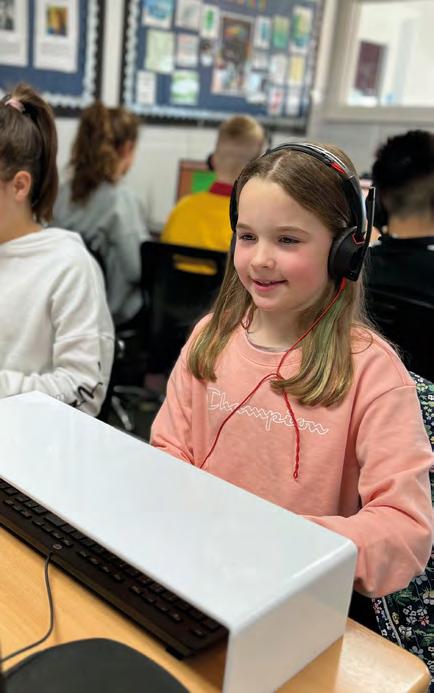

Monday 23 October
AUTUMN FAMILY FUN Iver Environment Centre, Iver. 10-12.30pm and 1.30-4pm, 3-10yrs. £8 with workshop. Pre-book tickets online. iverenvironmentcentre.org
Mon 23, Wed 25 and Fri 27 October
GYMNASTIC HOLIDAY CAMPS
Booker Gym Club, High Wycombe. Learn all aspects of gymnastics including Floor, Bars, Beam, Trampette, Bars and Tumble. Suitable for 4-10 yrs, includes a hot lunch and option for early drop off. £36 per child, £31 for additional siblings. Also running 25 and 27 October. To book, email: gym@hwjc.co.uk bookergymclub.co.uk
Tuesday 24 October
TERRIFIC TUESDAY
Chiltern Open Air Museum, Chalfont St Giles. Half-term holiday spooky fun. Pre-book online, Adult £14, Child 4+yrs £8, under 4yrs free. coam.org.uk
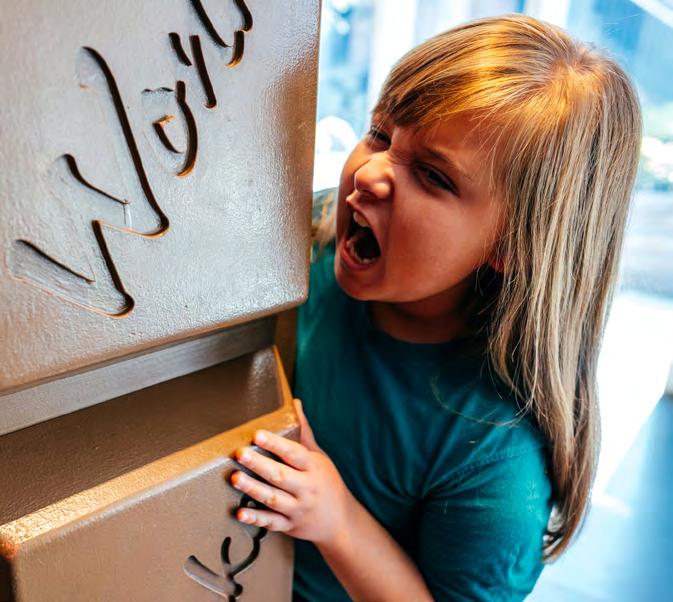
Wednesday 25 October
FAMILY EVENT: AUTUMN WILDLIFE College Lake Nature Reserve, nr Tring. 10.30am-12pm. Family workshop: nature, exploring, games and craft. £8 per child, Adults and under 2yrs free. bbowt.org.uk
JURASSIC EARTH
Wycombe Swan, St Mary Street. 12pm and 3pm. Standard price £24. Book online: wycombeswan.co.uk
Thursday 26 October
NATURE EXPLORERS DAY CAMP College Lake Nature Reserve, nr Tring. 10am-3pm. 7-12yrs only. £35 per child. bbowt.org.uk
Friday 27 October
HALLOWEEN ACTIVITY EVENING Iver Environment Centre, Iver. Halloween fun! 4.30-7pm, under 3yrs free, pre-book online. iverenvironmentcentre.org
HALLOWEEN SPECTACULAR
Chiltern Open Air Museum, Chalfont St Giles. Scary, spooky fun for all the family. Pre-book online, Adult £14, Child 4+yrs £8. coam.org.uk
Saturday 28 October
NATIVITY! THE MUSICAL
Wycombe Swan Theatre, St Mary Street. Presented by Florence Nightingale Hospice Charity. It features a host of memorable singalong hits including Sparkle and Shine, Nazareth and She’s the Brightest Star. fnhospice.org.uk/nativitytickets
TEACH REX
Aylesbury Waterside Theatre, Exchange Street. 10am, 12.30 &3pm. Pre-book online, from £13.20. atgtickets.com/aylesbury
Saturday 28 October and Sunday 29 October
PEPPA PIG’S FUN DAY OUT
Aylesbury Waterside Theatre, Exchange Street. Pre-book online. From £18.15 atgtickets.com/aylesbury
Sunday 29 October
HALLOWEEN PARTY
Wrights Meadow Centre, High Wycombe Spooktacular Halloween party, includes games and magic show. 2pm-4pm. See website: wrightsmeadowcentre.co.uk
Wednesday 15 to Saturday 18 November
MADAGASCAR THE MUSICAL
Aylesbury Waterside Theatre, Exchange Street. Madagascar The Musical roars into Aylesbury this November! Book tickets online: atgtickets.com/aylesbury

Friday 1 December to 3 January
SNOW WHITE AND THE SEVEN DWARFS
Aylesbury Waterside Theatre, Exchange Street. Mirror, mirror, on the wall, this year’s fun-filled family Panto has it all! Tickets from £13. Book tickets online: atgtickets.com/aylesbury
Saturday 2 to Sunday 31 December
CINDERELLA
The Elgiva, Chesham
Step into a fairy-tale world of enchanted pumpkins, a handsome prince and some very special footwear. Hilarious family pantomime suitable for all ages. Book tickets online: elgiva.com

Friday 8 to Saturday 30 December
PETER PAN
Queens Park Arts Centre, Aylesbury. Christmas in Neverland, family pantomime. Evening and matinee performances. For more info and to book tickets, visit: queensparksarts.com
CO-EDUCATIONAL
Our Thorpians have gone on to be leaders, entrepreneurs, scholars, athletes and artists, to name but a few. Whatever the future holds for our boys aged 4 to 16, we support, challenge and empower each unique individual to explore their passions, develop their talents and fulfil their ambitions.
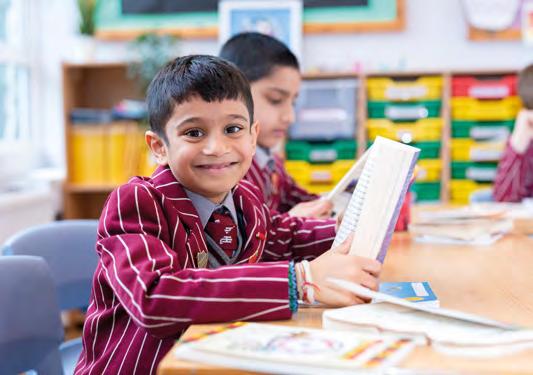

Open Days:
Saturday 7th October 2023, 10am–1pm
Tuesday 10th October 2023, 9–11am

Scan the QR code to find out more and book your place.
In the heart of Gerrards Cross, our brand new Sixth Form offers first class teaching, with an emphasis on academic achievement, the development of key life skills, leadership and exploration, extended pastoral care, and bespoke university and careers guidance.



Discover more at our Open Evening on
Tuesday 21st November 2023, 6.30–8pm